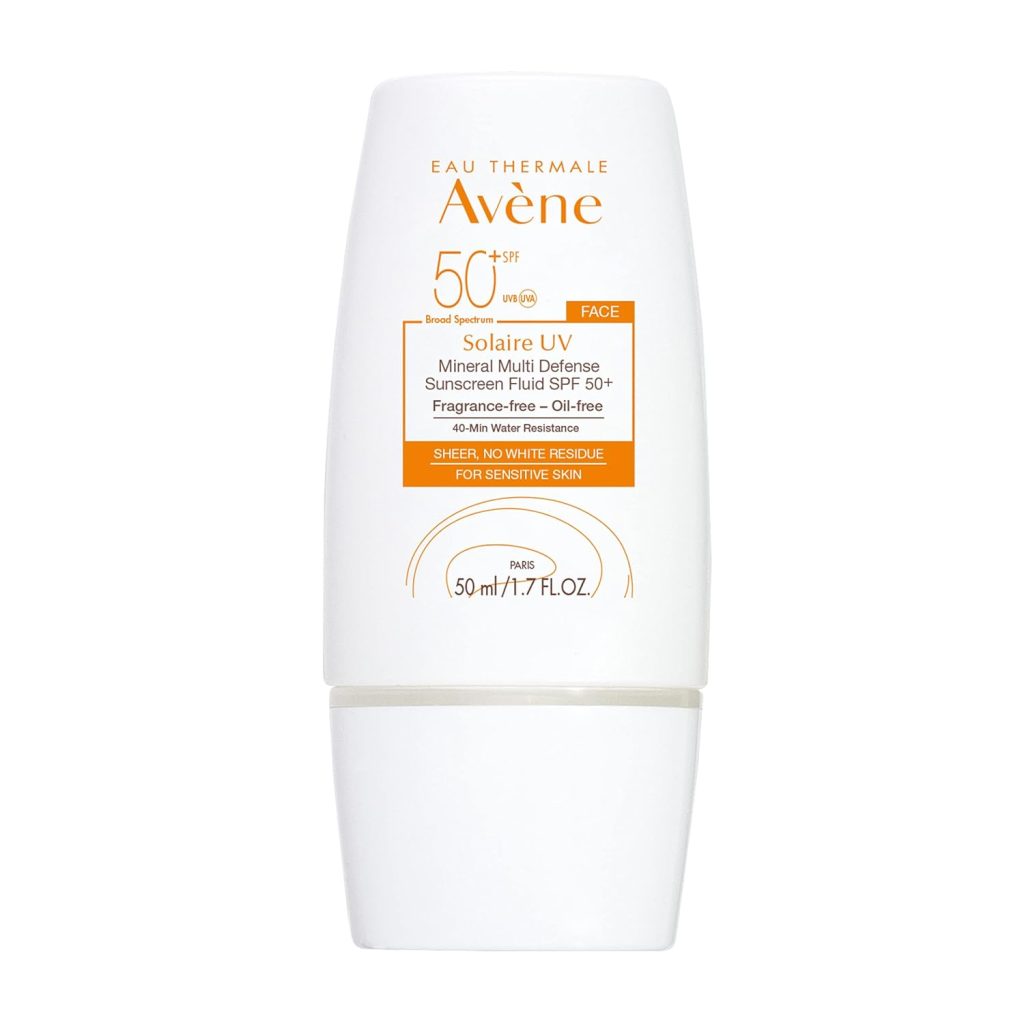Welcome to WordPress. This is your first post. Edit or delete it, then start writing!
Blog
-
Proven Strategies For Igniting Business Owner Mindset In Cebu
Discover how the business owner mindset can transform your digital nomad life in Cebu. Learn tips and inspiration. Build your dream business.
The Philippines is rising as a hub for female entrepreneurs. Over 99% of businesses in the Philippines are Medium, Small, and Micro Enterprises (MSMEs). Women run 54% of these MSMEs.
Yet, some think that travel and work don’t mix, but a business owner mindset can help balance both. It leads to financial control and the ability to choose the pace and impact of work.
This article shares strategies for launching business dreams in Cebu while also protecting your cyber safety and inner peace.
What Does Having a Business Owner Mindset Mean?
I used to believe the road to becoming a business owner was paved with sleek business plans and ironclad time management. Then Cebu happened, and my well-entrenched notions went out the window. I began to learn the essence of a true business owner mindset. And it lies in embracing an incredible set of contradictions.
Growth Mindset
Curtis J. Morley, in “The Entrepreneur’s Paradox“, puts it brilliantly: the successful entrepreneur must be a visionary and a detail-obsessed micromanager, a bold risk-taker, and a cautious planner. Initially, this felt maddening. How do you embody these opposing forces? But as I witnessed Cebuano vendors haggling over prices, yet always with a twinkle in their eyes, I realized the key isn’t in resolving the tension, but learning to navigate it.
This tactical maneuver requires a specific kind of mental agility, something Carol S. Dweck explores in “Mindset“. It’s the difference between the fixed mindset and the growth mindset. Cebu jolts you into a growth mindset – one day you’re bargaining at Carbon Market,the next you’re lost in a maze of backstreets. It’s humbling, and ultimately, transformative.
But transformation without a roadmap is just aimless wandering. Here’s where Eric Ries’s “The Lean Startup” philosophy has been my salvation. It’s about building a business with constant iteration – testing assumptions, pivoting quickly, embracing the power of ‘good enough’ when perfection is the enemy of progress. Cebu is an ideal laboratory for this. Resources can be scarce, plans change on a whim…perfect conditions to hone the art of lean, scrappy entrepreneurship.
Challenging the Status Quo
Mark S. Walton in “Boundless Potential“, advocates for questioning the status quo. As digital nomads, we already do that geographically, but what about the mental status quo? Cebu forces you to confront it head-on. Why work grueling hours when a swim at sunset might spark your next breakthrough? Why build a business that replicates a corporate structure when you could forge a model suited to your lifestyle?
This soul-searching is where Paul Jarvis’s concept of a “Company of One” resonates deeply. It isn’t about staying small,but about staying true to your core values and building a business that nourishes you, not depletes you. Cebu, with its slower pace and strong sense of community, can be the perfect incubator for such a deliberately crafted venture.
The journey, of course, continues. Some days the contradictions threaten to overwhelm. Then I catch a glimpse of a sari-sari store owner, balancing inventory with a warm smile for a customer, and I’m reminded: the business owner mindset is a state of constant flux, of relentless questioning, and a deep faith that ingenuity is born from the most unexpected of places. Perhaps, that’s Cebu’s greatest lesson of all.
How Do I Know If I’m Ready to Be an Entrepreneur?
The question of transitioning from freelancer to entrepreneur has haunted me in quiet cafes, staring at spreadsheets far past a reasonable hour. Here’s what my self-interrogations have revealed:
Freelancing Feels Like a Straitjacket
Perhaps you’ve mastered your niche, yet there’s a nagging sense of limitation. The paycheck, while comforting, no longer compensates for the lack of creative control. If this resonates, it’s not a flaw in your freelancing, but the first stirring of an entrepreneurial spirit.
The Entrepreneurial Self-Inventory
Before taking the leap, do an honest self-assessment. Do you find yourself analyzing not just your own work, but how businesses operate at large? Do inefficiencies ignite both frustration and a spark of “I could do this better”? These are positive signs.
However, let’s not romanticize entrepreneurship. If uncertainty makes you short of breath, or if the idea of building something from the ground up fills you with dread, hold fire! Perhaps the greater freedom lies in partnering with someone who possesses complementary skills, rather than shouldering it all yourself.
Tech Skills with a Twist
Certain tech specializations lend themselves beautifully to a business model. If you’re a web developer always tweaking template sites, ask: could you create and sell your own superior templates? If you’re a whiz at analytics, are businesses crying out for niche insights only you can extract?
This transition is not for the faint of heart. It will test your creativity, tenacity, and sanity. Yet, for some of us, the discomfort of remaining a freelancer will eventually outweigh the risks of forging our own path. And in a place like Cebu, with its unique blend of energy and ease, perhaps the risk feels just a little more thrilling than terrifying.
The journey itself becomes your greatest asset. There’s a Cebuano proverb, “Ang pagpangita og bahandi sama sa pagsaka og bukid” (Finding treasure is like climbing a mountain). Embrace the climb, with all its stumbles and breathtaking views.
Why is Cebu a Fertile Ground for Female Entrepreneurs?
Cebu has always felt like a place brimming with potential, an island where ambition simmers beneath a laid-back facade. This is particularly true for women, I’ve found. While there’s still a way to go in terms of shattering all glass ceilings, Cebu offers a unique environment for cultivating the female entrepreneurial spirit.
Let’s dissect this landscape:
- The Rise of the ‘She-E-Os’: There’s a palpable shift happening. More women are visibly leading businesses, from micro-enterprises to tech startups. This isn’t just about tokenism; Cebuanas are proving their business acumen across diverse sectors. Seeing these role models chips away at the ‘this isn’t for me’ mental barrier so many of us face.
- A Culture of Warm Pragmatism: Cebuanos possess a warmth that opens doors for networking and collaboration. But alongside this is a pragmatism born of necessity in an island economy – they get things done. This combination is empowering for women. There’s less performative aggression than you might find in larger business hubs, and more focus on building genuine support systems.
- The Resourcefulness Factor: One can never feel too far from the grassroots in Cebu. This translates into a spirit of resourcefulness – making the most with what you have, finding creative solutions – essential for any entrepreneur. The city is compact enough to navigate bureaucracy, yet vibrant enough to find niche markets and test ideas.
There’s something empowering about seeing a woman haggle with incredible charm at Carbon Market, then find her later that day presenting a polished pitch deck at a tech meetup. Cebu allows for this fluidity.
What industries are booming in Cebu right now, and how can I find my niche?
Cebu thrums with a peculiar energy – ambition tempered by the warmth of the Bisaya accent. This mix makes it an exciting place to build a business, particularly for someone like myself, with a digital skillset and an eye for the unusual. Let’s dissect some of these thriving industries and how to find your own place within them:
- The Outsourcing Behemoth: Cebu is a major hub for the Business Process Outsourcing (BPO) sector. Call centers and back-office operations abound. But don’t dismiss this out of hand. Think of BPOs like intricate organisms – they need specialized support systems. Could you create software streamlining their HR processes? Design training materials with global appeal? This requires insider insight, which can be gained through networking or even a short-term stint within the industry.
- Tourism’s Tentacles: Travelers flock to Cebu’s beaches, but there’s opportunity beyond the sun lounger. Can you build booking platforms that cater to niche interests (yoga retreats, adventure sports)? Could your design skills elevate the online presence of smaller, unique guesthouses? Cebu’s tourism industry is constantly evolving, offering fertile ground for those with a tech-savvy eye for improvement.
- Manufacturing Muscle: Less glamorous, perhaps, but Cebu has a solid manufacturing base. This presents a different kind of opportunity. Can you streamline inventory management for small-scale producers? Develop e-commerce solutions to help them reach wider markets? There’s an entrepreneurial spirit within this sector, eager to embrace innovation.
- The Real Estate Frenzy: Cebu, like much of the Philippines, is in a constant state of construction. This boom brings both opportunity and concern. Could you create a platform focused on ethical, sustainable housing? Develop tools for virtual property viewings, catering to both locals and overseas investors? The property market is always ripe for disruption, especially with a clear problem-solving focus.
Analyzing trends isn’t about dry market reports. It’s about becoming a keen observer of everyday life. How do Cebuanos shop, commute, solve problems? Those frustrations contain the seeds of business ideas. The key is to marry your existing tech skills with a deep understanding of local needs. A business owner mindset means finding not just gaps in the market, but potential that fills you with a sense of purpose.
How Can I Tap into Cebu’s Tourism Industry to Create a Sustainable Business?
Cebu’s tourism industry, at first, struck me as a realm of grand resorts and packaged experiences. But with a business owner mindset, I began to see the gaps, the subtle frustrations, the missed opportunities to truly connect with a place beyond its Instagrammable surface. That’s where the true potential lies for tech-savvy entrepreneurs.
- Tech as the Intimate Guide: Think beyond the standard travel app. How can you harness technology to unlock the hidden stories of Cebu? An augmented reality walking tour? An app that matches travelers with local artists based on interests, replacing the impersonal souvenir shop? Even a service streamlining communication between tourists and ethical tour guides in remote areas can add immense value.
- Globally Minded, Locally Rooted: The most compelling businesses often solve a local problem with a solution that has universal appeal. Perhaps you’ve struggled with finding authentic Cebuano cuisine amidst tourist traps –– an online platform rating home chefs and providing booking services could be a hit with both locals desiring to share their culture and adventurous travelers. Or, an app facilitating easy and eco-conscious rentals of camping gear, surfboards, or motorbikes taps into the desire for independent exploration while solving a logistical issue for Cebuanos.
- Partnership, Not Parasitism: The temptation to simply ‘disrupt’ traditional tourism is a recipe for resentment. Instead, approach existing players with respect. Boutique hotels might see value in partnering with your tech-powered experience platform, bringing guests deeper engagement. Dive operators might jump at software that helps them optimize trip scheduling and client communication, streamlining their business. The most sustainable business models create win-win scenarios, like the symbiotic relationship between the clownfish and the anemone.
Cebu’s tourism potential is still being written, and digital nomads with both technical skills and an observant eye are in a prime position to contribute a compelling chapter.
How can I avoid burnout as a solo entrepreneur in a stimulating place like Cebu?
Burnout: it’s the unspoken menace lurking beneath the Instagram-perfect image of the digital nomad sipping coconuts while running a global empire. Cebu, with its lure of beaches and fiestas, amplifies the challenge tenfold. I confess, it took me a few scorching cycles of overwork and overwhelm to learn a few counterintuitive lessons.
Firstly, those boundaries…they’re a beautiful illusion. At least, the rigid “9-to-5, then switch off” kind. As an entrepreneur, your mind is a relentless engine of ideas, even when you’re hiking up Osmeña Peak. The trick is not in suppressing that flow, but channeling it.
I’ve learned to take digital notes. Inspiration strikes while waiting for my laundry? It goes in my notetaking app, not into an all-night work binge. Cebu forces a different rhythm – you work in bursts, then life pulls you away. Learn to work WITH those interruptions, not against them.
Secondly, wellness here needs to be tailored to the entrepreneur’s specific anxieties. Generic yoga classes did little for my racing mind. Thankfully, I’ve discovered a few gems: meditation apps. These resources acknowledge the unique pressures we face – they don’t ask you to leave your business owner mindset at the door, they help you sharpen it.
Finally, there’s the dance with Cebu Time. Islands aren’t big on schedules. Flights get delayed, meetings drift into long lunches. Initially, this drove me mad. But then I realized…there’s opportunity here. I schedule my most demanding tasks for early mornings, when the city is briefly quiet. I embrace afternoon siestas, but wake for an hour or two of focused work in the cool evenings. My productivity soared, because I learned a more fluid rhythm, not despite it. It’s a lesson Filipinos have mastered – the appearance of laid-back ease often masks tremendous adaptability.
The journey continues, of course. Some days are triumphant, others…well, there’s always strong Cebuano coffee for those. But Cebu, with all its vibrant chaos, has become my unlikely teacher in the art of sustainable ambition.
How can I balance my business ambitions with enjoying the slow-travel lifestyle that Cebu offers?
Balancing ambition with the slow travel lifestyle is a constant juggle for me, but it’s a delightful one. I often think of it like the yin and yang symbol, where seemingly opposite forces complement and complete each other.
Slow entrepreneurship is not just possible, it’s the dream we’re all chasing, isn’t it? The ability to build something meaningful while remaining untethered to a single location. As Cal Newport describes in “Deep Work,” focused, intentional work bursts are far more productive than scattered hours spent at the laptop. Apply this to your Cebu adventure: dedicate solid blocks of time to your business, then fully embrace your free time to explore. Don’t half-work at the beach – it satisfies neither your business nor your wanderlust.
Cebu offers a unique advantage for this. The island’s slower pace naturally lends itself to longer, focused work sessions,followed by genuine breaks. Use the stunning Chocolate Hills of Bohol, the serene beaches of Bantayan Island, or even a simple sunset stroll along the Cebu City coastline as inspiration. You’ll find that stepping away from your screen often leads to your biggest breakthroughs.
Remember, your business model can be as flexible as your travel plans. Embracing remote work and outsourcing tasks allows you to enjoy Cebu’s adventures without sacrificing productivity. Consider building a business that caters to the digital nomad community, offering services or products they need. This way, your passion and expertise align with your lifestyle.
Countless women have already paved the path. Natalie Sisson, the Suitcase Entrepreneur, and Corbett Barr, who created a multi-million dollar blog while traveling, are just a few examples. Don’t just admire their success – study their strategies, adapt their principles, and craft your unique path to slow entrepreneurial bliss in Cebu. You are not alone in this pursuit. Seek out fellow digital nomads and entrepreneurs who share your values. Collaborate, learn from each other, and celebrate your victories – together.
Parting Thoughts
Cebu, with its unique blend of bustling opportunities, vibrant culture, and warm community, offers a fertile ground for female digital nomads ready to embrace their inner entrepreneur. It’s a place where the lines between work and life blur in the best way possible, and where inspiration can be found around every corner.
But don’t wait for the “perfect” moment or the fully-formed business plan. Start with the mindset shift. Take that first,brave step towards owning your vision. As the iconic entrepreneur Reid Hoffman once said, “If you are not embarrassed by the first version of your product, you’ve launched too late.” So dive in, embrace the uncertainty, and let Cebu be your launchpad.
Speaking of starting something, if you’re ready to take the first step in safeguarding your business, you can read my guide on The Best Laptop Anti-Theft Devices For Digital Nomads.
-
Introducing The Best Outfit For Island-Hopping In Cebu
Digital nomad’s guide to the best outfit for island-hopping in Cebu! Find style, comfort, and sustainable choices for an amazing adventure.
The excitement around Cebu island-hopping is real. But trying to see everything in a whirlwind weekend can lead to burnout. I suggest savoring heartfelt moments, not just snapping Instagram-worthy spots.
Now, for us tech-loving travelers, packing presents a challenge. How do we fit in laptops, cameras, swimsuits, and comfy clothes?
Choosing the ideal attire is about more than comfort. The best island-hopping outfit enhances island adventure. It promotes wellness and stokes wanderlust.
Choosing the Right Fabrics for Cebu’s Climate
Island-hopping in the Philippines isn’t always glamorous. You’ll likely end up sweaty, sunburned, and salty. So, picking the right clothes is the cardinal rule.
Choose Breathable and Quick-Drying Fabrics
Lightweight linen, airy cotton, and quick-drying synthetics are great options. Quick-drying fabrics mean you won’t stay wet and chilly after a swim.

Loose Linen Jumpsuit
This jumpsuit is great for island-hopping in Cebu because it’s lightweight, breathable, versatile for both beaches and exploring, and offers pockets for carrying those island adventure essentials.
Opt for Natural Fibers
Linen and cotton are island favorites for good reason. They’re comfy, breathable, and often more eco-friendly than 100% synthetic choices. Look for blends that mix both for coolness and durability.

Cotton Halter Top
This cotton halter top is great for island hopping in Cebu because it offers a blend of style, versatility, and comfort, allowing you to transition easily from exploring beaches to dining out, all while staying cool in the tropical heat.
Think Sun Protection
Sunscreen is a must (and reef-safe, please!), but clothes with UPF protection add a layer of defense against the intense tropical sun. Find garments with built-in sun protection to shield yourself from those sneaky afternoon rays that can lead to a not-so-pretty lobster look.

UPF 50+ UV Long Sleeve Shirt
This long-sleeved shirt is ideal for island hopping in Cebu because it offers sun protection, breathability, quick-drying fabric, and versatility for both water and land activities – all essential for Cebu’s tropical climate.
Island-Hopping Style Guide
Here’s your guide to island style. Picture yourself transitioning from boat to beachside café without worrying about swimsuit mishaps or sunburn.
Versatile Swimsuits for Every Adventure
Your swimsuit is the cornerstone of your island-hopping attire. Choose classic styles in solid colors or subtle patterns that mix and match like a dream. Look for a one-piece with adjustable straps for support and a hint of retro charm.

Ruffled One-Piece Swimsuit
This Ruffled One-Piece Swimsuit is great for Cebu island hopping because its adjustable lace-up back provides a secure fit for swimming and exploring. The ruffled design adds a touch of style while the one-piece coverage offers sun protection and comfort.
Chic and Practical Cover-Ups
Pack a gauzy linen dress or a lightweight sarong for those sunny island days. These versatile pieces shield you from the sun but can transform into a trendy skirt or top for a sunset dinner. Think effortless elegance with a touch of boho – a la a modern-day Jane Birkin exploring the tropics.

Sarong Coverup
This Sarong Coverup is great for island-hopping in Cebu because it’s lightweight, breathable, quick-drying, and versatile. It offers sun protection, a touch of style, and can be transformed from a cover-up into a skirt or top.
Must-Have Accessories: Hats, Sunglasses, and More
Embrace the laid-back island vibe with a wide-brimmed sunhat that’s practical and stylish. Opt for breathable natural fibers like straw or raffia. Oversized sunglasses add an air of mystery to your look. And don’t forget a few simple jewelry pieces—think delicate gold chains or a woven bracelet—to elevate your outfit with no trouble.

Polarized Sunglasses
These polarized sunglasses are ideal for Cebu island-hopping. Their classic design goes with anything, while the polarized lenses cut glare off the water, letting you see stunning underwater views and protecting your eyes from the bright Philippine sun.
Digital Nomad Packing Tips for Island Life
The best outfit for island-hopping in Cebu is simple, with neutral colors like white, beige, navy, and olive green as your base. Add pops of color and subtle prints with lightweight tops and bottoms. Invest in quality pieces that last, such as linen shorts or a chambray jumpsuit.
Keep your tech safe from sand and sea with waterproof dry bags in various sizes. Use a microfiber cloth in your tote to keep your sunglasses and phone screen clean. If you plan to work by the beach, consider a hard-shell case for your tablet.
For wrinkle-free outfits during your travels, choose fabrics like linen, rayon, or jersey blends that resist creasing naturally. Rolling your clothes instead of folding them will also help minimize wrinkles. And don’t forget a travel-sized stain remover pen in your bag—it’ll save the day if a splash of mango juice threatens your favorite top.
Food & Exploration Essentials
The joy of slow travel in Cebu is about embracing surprises – taking your time over lunch, discovering hidden coves, or following a jungle trail. Let’s get you ready for tasty island meals and the adventures they inspire.
- Sustainable Beach Bags for Snacks and Gear. You’ll want a sturdy, eco-friendly tote to carry your essentials. Look for spacious options made from natural materials, like a woven straw bag.
- Comfortable and Stylish Footwear for Every Terrain. Choose sandals that can handle diverse landscapes – like Tevas or KEENs – for sandy beaches, rocky coves, and jungle paths. Opt for a neutral color that goes with everything.
- Dress for Delicious Island Meals. Wear a loose-fitting maxi dress in breathable fabric, like breezy linen or soft cotton. Add a light cardigan for cooler evenings.
Beyond the Basics: Island Adventure Must-Haves
We’ve covered the basics of the best island-hopping outfit. Now, let’s talk about what you need to stay protected.
- A rash guard. It prevents those weird tan lines and shields you from jellyfish stings, coral scrapes, and the blazing sun. If you plan on lots of snorkeling or waterfall chasing, get a long-sleeved one like the Kanu Surf Rash Guard. Pick pretty patterns or bright colors that flaunt your style, even underwater.
- Eco-friendly sunscreen. Keeping Cebu’s waters clean is a job for everyone. Try mineral-based sunscreens such as Babo Botanicals Clear Zinc.
- Mini first-aid kit. Scrapes and bug bites happen, so be ready with something like the Welly Mini First Aid Kit. You might also want antihistamine cream for bug bites and electrolyte tabs to stay hydrated in the heat.
Conclusion
Cebu’s island-hopping magic doesn’t lie in checking off destinations but in savoring fleeting moments – chasing a school of vibrant fish, sharing laughter with locals over a grilled seafood platter, or simply feeling the warm sand between your toes. With the best outfit for island-hopping, nothing stands between you and these experiences. If you’re eager to make every island photo count, check out my guide “What To Wear In Cebu For Beautiful, Stunning Photos.”
Embrace the unexpected detours that slow travel encourages. A canceled ferry or a sudden downpour might feel disruptive at first, but they often lead to hidden gems and the most memorable stories. After all, as a wise traveler (or was it a mischievous hobbit?) once said, “It’s the job that’s never started as takes longest to finish.”
-
Packing For the Philippines: Are You Bringing The Right Luggage?
Packing for the Philippines? This comprehensive guide reveals what to bring and what to leave behind for a seamless and enjoyable trip.
The first time I made the rookie mistake of bringing a suitcase the size of a small refrigerator was when I went to Bohol in 2016. Stuffed inside was everything from a dozen sundresses I never wore to hiking shoes for trails I never found. As I lugged the monstrosity down unpaved roads and onto crowded buses, I swore it was plotting my demise.
Packing for the Philippines isn’t about squeezing a month’s worth of belongings into a carry-on. It’s about understanding what genuinely serves you in these 7,000+ islands, and ruthlessly editing out the rest.
Backpack vs. Suitcase: Choosing Your Travel Companion
I understand the packing paradox all too well. I’ve called Cebu home for a few years now, and even with a fixed base, the lure of slow travel throughout the Philippines is irresistible. But that first critical decision – backpack or suitcase – always gives me pause. It’s a battle between the romantic freedom of the backpacker and the grounded practicality of wheels on cobblestones. Here’s how I break it down:
Where are you going in the Philippines?
The terrain, length of stay, and type of travel dictate my luggage choice for exploring the Philippines. A backpack might be awesome for short island-hopping stints. But when you’re relocating for a month of writing and remote work with occasional side adventures, a suitcase starts to feel far more sensible.
The Right Suitcase for Travel in the Philippines
If, like me, you sometimes opt for a suitcase, here’s the deal:
- Hard-Shell: Those flimsy fabric ones get beat up quickly on Philippine roads. Invest in a sturdy hard-shell suitcase.
- Medium Sized: Too big, and it’s unwieldy. Too small, and you’ll regret it during a longer stay. A medium-sized suitcase strikes that balance.
- Four-Wheel Spinners: This is non-negotiable. Dragging a two-wheeler is a recipe for achy shoulders and general annoyance.
The Right Backpack
The freedom of a backpack during those first few island-hopping adventures was exhilarating. But remember, you are not trekking the Himalayas (though that would be epic). A 40-60L backpack designed for multiple climates is more than enough for packing for the Philippines.
The Art of Packing Light: Travel Like a Minimalist
For quick-trip tourists, “packing light” might just mean squeezing everything into a carry-on. But for us nomads, it’s adopting a whole mindset shift. We don’t need ten outfits for an eight-day trip – that’s laundry day once, and that’s doable! It’s about curating the essentials, the pieces that work for multiple occasions, that take up minimal space but still allow for personal expression.
How can you optimize your luggage space?
Here’s where those packing cubes and compression bags become your best friends. Think of them like a Tetris game for your luggage. Packing cubes force me to compartmentalize and see how little I truly need, and those compression bags? I swear they suck out extra air to give you back precious inches inside your bag. They make the limited feel limitless!
The Capsule Wardrobe: Benefits of Packing Light
This concept is a lifesaver for minimalist travel. It’s the idea of creating a compact wardrobe where everything coordinates, allowing you to mix and match dozens of outfits with just a few key pieces. With a capsule wardrobe, you keep pieces that feel authentically YOU. It’s freeing, stylish, and takes the packing stress out of the equation. Think of it as your adventure uniform, ready to adapt to island-hopping days or cafe-hopping afternoons in Cebu.
And, if your travels extend beyond Cebu, or you find yourself needing temporary storage for souvenirs or bulkier items, don’t forget to check out my article on “Luggage Storage and Self-Storage Facilities in Cebu.”
Sustainable Packing: Leaving a Light Footprint in the Philippines
I’ve seen the impact of careless tourism on these beautiful islands. Fragile ecosystems struggle under the weight of plastic waste, while rapid development erodes traditional ways of life.
Choosing luggage is the first step towards a more ethical approach. Companies like Patagonia, Cotopaxi, and Paravel prioritize recycled materials, fair labor practices, and give back to communities.
Invest in a portable water filter and avoid endless plastic water bottles. Lifestraw and Grayl are reliable options. Pack shampoo bars, and refillable bottles for your go-to products, and stash snacks in silicone bags.
Not only are you reducing your impact, but you’re likely to spark conversations with curious locals and have unique encounters that wouldn’t happen if you relied solely on convenience.
Conclusion
Traveling light is key to fully experiencing the beauty of the Philippines. Shedding physical and mental weight opens you up to spontaneous adventures, like impromptu fiestas or island hopping. Leave room for the unexpected and pack your adaptability and curiosity. Remember, the most transformative adventures can be sparked by simple questions like “What happens if I leave this behind?”
-
Keeping Cash Safe In Cebu: Easy and Sure Fire Ways
Learn about keeping cash safe & explore the growing cashless options for a worry-free, tech-savvy slow travel experience.
You’ve carefully planned your trip to Cebu, a place where you can slow down and enjoy the scenery. There are history walks, beautiful beaches, and enough mangoes to last you a year of writing sprints. Your brow gets a familiar wrinkle as you pack your Kindle and noise-canceling headphones. Keeping cash safe in a new city can be like figuring out a challenging crossword puzzle.
The good news is that Cebu has a great mix of old-fashioned charm and innovative new technology. Let’s walk through the cute streets and talk about how you can use both cash and card payments to make sure your slow travel experience is not only enriching but also incredibly convenient.
Why is cash important in Cebu?
As a self-proclaimed Cebu enthusiast who has lived on this lively island paradise for four years and counting, I learned an important lesson: keeping cash safe is an important part of slow travel. But it’s often forgotten. Black Mirror shows a world with a lot of connections, but Cebu, especially outside of the big towns, still has a lovely, analog charm.
Not all vendors and restaurants accept cards, especially in smaller towns.
Picture yourself spending a calm morning exploring a secret spot with turquoise water that begs for a swim. Your stomach is growling from the swim, and you happen upon a roadside stand brimming with brightly colored mangoes and shiny lumpia. The smell is enticing, and your stomach starts to growl in anticipation. Shamefully, the seller smiles and shakes his head, saying, “No cards accepted.” This happens all the time in Cebu’s cute towns and villages.
Cash allows you to experience local markets and street food with ease.
There are a lot of small businesses in the area that only take cash. These include mom-and-pop shops and the common sari-sari stores. It’s a warning that the Philippines isn’t completely digitalized yet, which is part of what makes the island so appealing.
The famous Cebu food markets are a sensory overload of sights, sounds, and smells. There are huge piles of fresh food and bowls of hot local treats here, but cash is still the only accepted form of payment. One of the best ways to fully experience the culture is to carry a handful of pesos with you while haggling for the ripest bananas or pineapples.
It offers a buffer in case of unexpected ATM downtimes.
Lastly, don’t forget the unexpected. Even though technology is great, it can break down sometimes. ATMS can stop working, and in some remote places, internet access can be spotty. Having extra cash on hand in case of an emergency keeps you from getting stuck and unable to buy coconut water or pay for a tricycle ride back to your cozy hostel. You can think of it as a safety net, something to protect you from potential issues that can happen while traveling.
When might you need cash in Cebu?
There is a fine line I’ve learned to walk between being a digital nomad and keeping my cash safe in Cebu. Credit cards and mobile apps are becoming more and more popular, but sometimes crisp Philippine pesos are the best way to pay for things while traveling.
Paying for jeepney rides, tricycles, and habal-habal transport.
Imagine taking a jeepney, the Philippines’ most famous form of public transportation. These fancy buses, which are often covered in pop culture references, are a fun way to see the city. The catch is that you can only pay for jeepney rides with cash. Each trip usually costs only a few dollars.
The same goes for tricycles, which are motorized pedicabs that can move through the streets very quickly. And for the truly daring, there are the habal-habal, which are motorbikes with extra seats for people to sit on. These are an exciting (and sometimes a little scary) way to find the island’s secret gems.
Entering temples, historical sites, and local attractions with small entrance fees.
Cebu is full of interesting culture and historical sites. You could find a peaceful Buddhist temple tucked away on a side street or a Spanish fort that has been there for hundreds of years watching over the coast. These hidden gems usually don’t charge much to get in, but having cash on hand will make sure you don’t miss out on these tourist spots.
Bargaining at flea markets and independent shops.
It’s almost an art to haggle here, and a few well-placed pesos can get you amazing things like handwoven textiles, handmade crafts, or weird gifts. You can take part in this lively cultural exchange and leave with a one-of-a-kind piece of Cebu in your bag if you have cash on hand.
Tipping at restaurants and for excellent service.
Many small businesses in Cebu, which are very important to the local economy, don’t have the technology to accept credit cards. If you have cash on hand, you can support local artists and businesses while also finding secret gems like that weird bookstore full of travel books or the family-run cafe with the best mango shakes in town.
Even though Cebu is moving into the digital age, making sure you have pesos on hand will allow you to fully enjoy this breathtaking island paradise.
Where to get cash in Cebu?
Having been a slow traveler for many years, I now know how important it is to have extra cash on hand. It lets you into lively local markets, makes it easy to haggle at a cute flea market, and lets you enjoy the joy of street food sellers who might not have card readers. Where can one obtain cash in Cebu, particularly considering the importance of keeping cash safe?
Using ATMs with international network compatibility.
First, let’s talk about the most common: ATMs. What’s great about ATMs is how easy they are to get to. They’re spread out in Cebu City, tourist spots, and even smaller towns. Look for machines with logos for foreign networks like Plus or Cirrus. These will make sure that your card works. A word of warning, though: there are fees for withdrawals. Include these in your budget so that you don’t get caught off guard.
Exchanging foreign currency at reputable money changers.
You could also exchange foreign currency at a reliable money exchanger. You are on a quest for the best exchange rate. This is where some research helps. Licensed money changers usually put their rates in a clear place for everyone to see. Stay away from companies that offer rates that are much higher than the competition. The deal may be too good to be true. For extra peace of mind, look for businesses that are in well-lit places and have security staff.
Withdrawing cash advances from credit cards.
When you need cash quickly, it can be tempting to take out a cash advance on your credit card. But most of the time, the interest rates on cash advances are much higher than the rates on normal purchases. Think of it like Han Solo reluctantly taking a bounty—only do it if you have no other choice.
Read my piece “ATM Withdrawal Limits in Cebu” to learn more about how to use different networks and how much money you can take out of an ATM in Cebu. With this information, you should be able to keep your cash safe and get the most out of your adventures in Cebu.
How to Identify Safe Money Changers
For slow travelers, changing crisp foreign bills into colorful Philippine pesos can save their lives. This way, you can buy mango sticky rice or take a ride on a cutely chaotic jeepney. But there are so many choices on the streets. How do we know which businesses we can trust and which ones might leave us with less money and a heavy heart? Keeping cash safe is important, and a little detective work can go a long way.
Look for establishments with government licenses displayed prominently.
Imagine Dr Temperance Brennan carefully checking a dusty bone. Bring that same energy with you when you go up to a money changer. Look for a government license that is easy to see. It is generally given out by the Bangko Sentral ng Pilipinas (BSP), which is the country’s central bank. Having a license on display shows that they’ve followed the rules, which gives you some peace of mind.
Do you remember the “blink test” that Malcolm Gladwell talked about in his book “Blink: The Power of Thinking Without Thinking”? Often, our gut feelings are surprisingly right. Use the same gut feeling here. Does the person who changes money look clean and professional? Are there any warning signs, like lights that flash or a place that seems empty? Trust your instincts.
Compare rates and avoid changers offering significantly higher exchange rates.
Before you leave the safety of your hotel Wi-Fi, use a reputable website or app that converts currencies to get a feel for the level of exchange rate. There will always be some changes in the exchange rate, but if a money changer offers a rate that is much higher than the average, they are probably trying to get you to buy something by hiding a fee or trying to trick you.
Choose changers located in well-lit, populated areas with security personnel.
As a female tourist who likes to go off the beaten path, I know how appealing hidden gems can be. If you want to keep your cash safe, though, you should go to well-lit, busy places with security guards. Minimizing the chance of small theft and making the deal feel safe are the main goals.
Cash-Carrying Strategies for Slow Travelers
As a chronic planner (some might even say bordering on Monica Geller levels of organization), I need two ways to keep my cash safe in Cebu. Imagine you are in a hot market on a sunny afternoon, looking for handmade goods from the area. You come across a booth that is full of handmade tapestries in a wide range of colors. You have to have it, but does the seller take cards? In this case, cash is probably king.
Divide your cash into separate stashes for daily expenses and emergencies.
Think of your money as an army you’re carefully sending out into battle. I set aside a certain amount of money every day to pay for things like jeepney rides, small meals, and admission fees. This is my “frontline cash,” and it’s easy to access because it’s in a safe zip pocket on my shoulder bag. The rest of my money, which I call my “emergency reserve,” goes into a hidden money belt that I wear under my clothes. This division makes sure I have enough for daily needs and a safety net in case something comes up that I didn’t plan for.
Consider Malcolm Gladwell’s idea of “tipping points” – something small, like losing your wallet, can throw off your whole schedule. A hidden reserve makes sure that a small problem won’t ruin your well-thought-out slow travel journey.
Use a money belt or a secure crossbody bag for discreet carrying.
Big fanny packs scream “tourist with valuables!” My favorite weapon? A stylish shoulder bag that is safe and has many pockets. The important thing is to put utility over style. For extra security, look for bags with straps that you can change, strong zippers, and, if possible, a material that can’t be cut.

Pacsafe Women’s Citysafe Cx Anti-Theft Convertible Backpack
Being able to carry cash safely in Cebu is easy with the Pacsafe Women’s Citysafe Cx Anti-Theft Convertible Backpack. Its slash-proof fabrics and lockable zippers thwart pickpockets, and RFID-blocking pockets protect your credit cards from electronic theft. Keeping your belongings near and your worries at bay, this multipurpose bag makes for easy, hands-free exploring.
Avoid carrying large amounts of cash when exploring crowded areas.
Imagine walking through the lively Sinulog Festival parade, which is full of people and energy. During these times, it’s better to take less cash. Stick to the money you need for daily purchases and keep the extra money in your money belt for emergencies. This lowers the amount of money you could lose if you run into pickpockets or bag snatchers, which is always a risk in crowded places.
Using Your Hotel Safe Effectively
After traveling a lot, I’ve learned how to balance enjoying the lively local scene with keeping my things safe. Hotel safes are often used as temporary vaults, but using them effectively takes planning.
When is it the best option for storing cash?
Imagine that you’ve found a secret gem: a cute local market full of unique items that were made by hand. The hand-painted tote and unique silver necklace you found are just itching to be a part of your travel story. Carrying a substantial sum of cash back to the hotel feels unsafe, especially with your purse stowed away for safekeeping. When this happens, you’ll appreciate the hotel’s safe. Keep your day’s leftover cash here, so you can fully enjoy the market without any worries.
Important safety measures to take before depositing valuables
When taking things out of your hotel safe, think of the famous question “Does it spark joy?” Here’s the version that works for travel: “Do I absolutely NEED this on every adventure?” “Need” items include cash, IDs, credit cards (with copies kept separately!), and medicine that you need to live. However, you should leave your expensive jewelry, large amounts of cash for future trips, and your whole laptop (more on that later) somewhere else.
My habit is to double-check the safe’s functionality (sometimes a simple reset is all it needs) before putting valuables in it. I also use my phone to snap a picture of the inside of the safe, making sure to capture any unique codes or numbers. This small step might not seem important, but it could save your life if something goes wrong or you forget something.
What items should never be kept in a hotel safe?
In “Wild,” Cheryl Strayed wrote very well about how getting lost is sometimes the only way to find yourself. But losing all of your data files because your laptop was stolen? Not part of the adventure. Consider putting laptops, portable hard drives with important data, and photography equipment in a safe, lockable drawer in your room, if one is available. Remember that a hotel safe is meant to stop small thefts, not serious thieves.
By doing these easy things, you can turn your hotel safe from a boring metal box into a trustworthy protector for your valuable travel items. This will let you fully accept the slow travel philosophy and explore with peace of mind and safety.
Tech Hacks for Managing Cash in Cebu
I call myself a digital nomad, but I’ve grown to love slow travel. I’ve also learned how to balance the benefits of technology with keeping cash safe while traveling. I’ve found the following tech tips to be very helpful:
Downloading offline currency converter apps for quick calculations.
Imagine getting lost in the maze-like charm of a local Cebu market, filled with bright fabrics and unique items. There’s a handmade bamboo basket that interests you, but the price is written in pesos. One of the best things you can do is download an offline currency converter, such as My Currencies or XE Currency. You can quickly change prices to make sure you don’t pay too much for that perfect souvenir.
Using budgeting apps to track cash spending and stick to your plan.
Remember the days before smartphones, when you spent hours each day carefully recording on spreadsheets every dollar you spent? There’s an easier way. With the help of budgeting apps like Mint or YNAB, you can keep track of your spending, create spending targets, and—most importantly—stick to your plan. These apps give you a sense of control and help you be more aware of your spending, so you can experience Cebuano culture without worrying about going over budget.
Can mobile payment apps be used for everyday transactions in Cebu?
Are you ready for the good news? Cebu is joining the march toward cashless transactions! Smaller stores and street sellers may still only take pesos, but more and more restaurants, cafes, and even public transportation services now accept GCash or PayMaya as modes of payment. You don’t have to carry around large amounts of cash because these apps make it easy and safe to pay. Read my piece “Best Free Online Payment Methods in the Philippines” to learn more about Filipino FinTech. It’s a must-read for any tech-savvy traveler who wants to avoid carrying cash.
It’s still sometimes a good idea to have a small amount of cash on hand, even though more and more things can be done without cash. But if you know these tech hacks, you can feel safe walking around Cebu.
Keeping Cash Safe: Practices for Mindful Travelers
As an introvert who finds great joy in exploring the world, it’s exciting to embrace the unknown. Still, safety must take precedence even in the middle of new discoveries. I’ve learned over the years that these habits help me feel more at ease, and keeping cash safe is just one of them.
Informing your bank about your travel dates to avoid transaction blocks.
Imagine you’re at a cute cafe on Malapascua Island, tucked away in a quiet spot, ready to enjoy a treat after a dive. When you go to use your card, you see the awful sign “Transaction declined.” Fear sets in. This made-up situation shows how important it is to let your bank know about your travel plans. You can save needless hassle and make sure your plastic stays functional with just a short call or message using their app.
Photocopying important documents like passports and credit cards.
Murphy’s Law has a funny way of coming up with us on the road. A well-thought-out plan can quickly go off the rails if you lose your ID or have your credit card stolen. Here’s the hack I use: I make copies of the important parts of my passport and credit cards, like the picture and information page. These copies are kept away from the originals in a safe place, like a pocket in my carry-on bag. Having these copies on hand can speed up the replacement process and reduce disruptions in case the originals are lost or stolen.
Cultivating a sense of awareness and avoiding situations that feel unsafe.
One of the greatest gifts of slow travel is the chance to truly connect with a place. But this doesn’t mean we should give up on our instincts. As I walk down busy streets or through less well-known areas, I become more aware of my surroundings. This means being aware of my surroundings, staying away from dark places at night, and going with my gut if something feels off. A few moments of careful observation can save you a lot of grief.
These tips may seem like common sense, but they are the basis for a safe and enjoyable trip. By putting our safety first, we can fully enjoy the journey, the chance meetings, and the hidden gems that slow travel brings to light. Isn’t that what makes a trip unforgettable?
Embracing the Cashless Experience in Cebu
In Cebu City and tourist places, people are becoming less likely to use cash, which I feel is important to bring up.
This is a good choice for days when you’d rather not worry about keeping cash safe and look into the local scene without stress.
Identifying restaurants and shops that accept major credit cards and digital wallets.
Cebu is known for its rich culture and old-fashioned charm, but it’s also becoming a more tech-savvy place to visit. An increasing number of places, especially those that cater to tourists, now put up big signs saying that they accept Visa and Mastercard. Some food stands on the street are even getting on board by using QR codes to make digital transfers easier.
Exploring the growing cashless ecosystem in Cebu City and tourist areas.
Cebu is becoming a big place for digital wallets. A lot of places in the Philippines accept GCash, which is a famous mobile wallet. Now you can have a smooth dining experience—just scan the QR code at your table, check the amount, and you’re done! It’s over. Some stores may accept Apple Pay or Google Pay for people who want to buy things from other countries. But it’s a good idea to find out about their digital payment options before you place your order.
Important Note: Always confirm payment methods before placing an order.
When you’re in Cebu and don’t want to use cash, let “confirm” be your mantra, just like the Jeepney culture depends on “para” (stop). There’s no doubt that digital payment infrastructure is growing, but it’s still a good idea to check with the server or cashier to make sure that the business accepts the digital payment method you prefer. This easy step can keep you from getting into any awkward situations or being held up, so you can fully enjoy the cashless experience Cebu has to offer.
Don’t forget that Cebu is a lovely mix of old and new. Even though it’s still a good idea to keep some cash on hand for small purchases and unplanned events, using Cebu’s digital options can make your slow travel experiences not only more interesting but also a lot easier.
FAQs
Are there any downsides to using cashless transactions in Cebu?There can be a few minor drawbacks to consider. While the infrastructure is growing, some smaller shops and local vendors may still primarily rely on cash. Additionally, some remote areas you might explore on your slow travel journey might have limited internet connectivity, making digital payments unavailable. It’s always wise to carry a small amount of cash as a backup for such situations.
Are there any security concerns when using digital wallets in Cebu?As with any digital transaction, it’s important to be mindful of security. Always ensure you’re using official apps from reputable providers and avoid using public Wi-Fi for financial transactions. Consider enabling two-factor authentication on your digital wallet for an extra layer of protection.
What if I don’t have a Philippine mobile number? Can I still use GCash?Unfortunately, GCash requires a Philippine mobile number for registration. However, other digital wallets like GrabPay or Maya might offer registration options for international users. It’s advisable to research these options before your trip and ensure they cater to foreign users.
Are there any fees associated with using cashless transactions in Cebu?Generally, there are no fees for using digital wallets in Cebu for everyday transactions. However, some restaurants or shops might impose a small service charge for cashless payments. It’s always a good idea to inquire about any potential fees beforehand.
Do I need a strong internet connection to use cashless transactions in Cebu?While a strong connection is ideal, some digital wallet transactions in Cebu might function with a moderate internet signal. However, for QR code scanning and real-time confirmations, a stable connection is preferred. If you’re venturing into areas with limited connectivity, carrying a small amount of cash remains a wise precaution.
-
Scuba Diving In Cebu City’s Surprisingly Improved Marine Habitat
Scuba diving in Cebu City isn’t my scene, but I’m cheering for its revitalized reefs. Discover dive sites and how you can make a difference.
I’m the type of person who prefers a good book and a gripping documentary to getting my hair wet. Finding that hidden coffee shop with excellent WiFi is my idea of adventure travel. But even I got excited about this recent marine conservation news in Cebu.
There was a huge sardinella surface run spotted near the city – that’s a mesmerizing swarm of those little, silvery fish swirling just under the surface. Marine biologists say it’s a sign that Cebu’s underwater ecosystem is on the mend after years of cleanup efforts. Now, I might not know my barracuda from my bluefin, but as a digital nomad who’s chosen to call Cebu home, this news hit close to heart.
Why? For one, it’s about respecting where you live. Like Jane Goodall hunkering down in the jungle, sometimes the greatest adventure is getting to know your backyard. And Cebu’s backyard includes this incredible underwater world that’s getting healthier by the day. Even if I never go scuba diving in Cebu City, knowing the ocean’s thriving gives a whole new meaning to island life.
But it’s also about the kind of travel we, as digital nomads, should be championing. You know, the slow kind. The kind where you integrate, not just pass through. A vibrant marine ecosystem means a healthier local environment overall, promising a richer, more sustainable experience for those of us who’ve put down roots (however temporary).
So, for all my fellow female digital nomads out there who love a good adventure but also prioritize making our footprint a positive one – this one’s for you. Let’s dive a little deeper (pun intended) into why Cebu’s dive scene is worth celebrating, even if you plan to stay firmly on dry land.
Full transparency – a few of the links within this post might lead you toward booking sites or product pages. I may earn a small commission if you choose to use these links. Of course, there’s never any pressure, and it doesn’t affect the price. I include these links because these services or products can add something special to your Cebu experience. I consider them carefully, always aiming to help you plan the most enriching trip possible.
Cebu: A Diving Hub, Even for the Dive-Curious
I’m not one of those adrenaline junkies who gets giddy at the thought of sharks. But even I have to admit, Cebu’s got something special for underwater enthusiasts – and it’s not just about the experienced crowd.
Why Cebu is Kind of a Big Deal
- Accessibility is Key: Cebu is blessed with an international airport (Mactan-Cebu International Airport). You can be sipping a mango shake on a beautiful beachside patio hours after ditching your cramped airplane seat.
- Variety Show: Whether you crave dramatic drop-offs, colorful coral gardens, or even the odd shipwreck, Cebu’s got your back. There’s a reason this place is considered the heart of Philippine diving.
- Name Recognition: Ask seasoned divers about top Southeast Asian dive spots, and Cebu’s almost guaranteed to come up. This means a well-established infrastructure for all your scuba diving in Cebu City needs.
Not Just for the Pros
- Newbie-Friendly: Plenty of calm, shallow sites off Cebu’s shores make it perfect for testing the waters (literally). Think of it as the bunny slope of the scuba world.
- Patient Instructors: Many dive centers specialize in catering to first-timers. These folks will break everything down, easing your nerves at an introvert-approved pace.
- Discovery Dives: Curious but unsure about a full certification course? ‘Discovery dives’ let you have a taste of the scuba life without a major commitment. It’s like the free trial period of the underwater world.
Island Life Beyond the Bubbles
Let’s be real, being a digital nomad isn’t all fins and fish. Here’s why Cebu works even when you’re not getting your hair wet:
- The Cafe Scene: Places with strong WiFi and even stronger coffee? Cebu’s got them in spades. Consider Abaca Baking Company and Tightrope for fueling up between editing sessions.
- Chill Factor: The whole island has a laid-back vibe that won’t make you feel guilty about a slow day with a good book. Because mindful travel sometimes means taking a break, even from the adventurous stuff!
- Community Connection: Solo travelers, rejoice! Cebu is a magnet for dive enthusiasts, meaning it’s easy to make new buddies over post-dive dinners and gear talk.
The Best Dive Sites in Cebu City and Surrounds
Choosing where to take the plunge is half the fun, right? Here’s a breakdown of some of Cebu’s hotspots, catering to different experience levels and underwater bucket list items.
Cebu City Reefs
- The Comeback Kid: With those recent sardine run sightings, the reefs right near Cebu City are the talk of the town. Years of conservation efforts (you can read more about those in [Title of research article on Cebu City reef conservation]) are paying off!
- Expect to See: Apart from those shimmering sardine schools, keep an eye out for an increased variety of fish, colorful corals starting to thrive, and maybe some of those quirky critters divers obsess over… nudibranchs anyone?
- Perfect For: A meaningful dive close to home base. If you’re short on time, it’s proof that eco-tourism and revitalization can make a difference, even in urban areas.
Mactan Island
- Convenience Central: Just a short hop from Cebu City, Mactan is your “I need a dive fix, like, yesterday” solution. Many popular resorts have dive centers on-site – talk about doorstep service!
- Crowd-Pleasing Sites: Dive spots like Hilutungan Island, Nalusuan Island, and the Talima Sanctuary offer vibrant reefs, gentle currents, and the potential to spot everything from turtles to frogfish.
- Digital Nomad Bonus: Decompress after your dive at a beachfront cafe with that all-important WiFi for catching up on work.
Book via Pelago to discover diving in Mactan with 30 minutes of training and safety precautions, plus actual diving for about 30 minutes.
Moalboal
- The Main Attraction: About three hours south of Cebu City lies, what many consider, the star of the show. Moalboal’s famous for that jaw-dropping sardine run – imagine snorkeling through a swirling, shimmering mass of fish.
- Beyond the Sardines: Wall dives, coral gardens, even a sunken plane wreck… Moalboal delivers variety. It’s great for leveling up your dive skills while ticking off those “must-see” underwater experiences.
- Prepare for Company: Popularity has its trade-offs. Dive operators like Savedra Dive Center prioritize eco-tourism, but even so, you’ll likely share the sites with other groups.
Pescador Island is a haven for both seasoned divers and those just dipping their toes in (literally!). Its sheltered bays and gentle currents offer a safe, thrilling introduction to the underwater world. Book a Pescador Island Hopping & Diving Experience. Discover vibrant coral reef, shimmering schools of fish, maybe even a curious sea turtle… all without the pressure of a full-blown diving certification.

Further Afield Excursions
- Malapascua’s Thresher Sharks: Want a big-ticket item for your dive log? This northern island is where you up your chances of an encounter with the unique, long-tailed thresher sharks.
- Southern Cebu & Whalesharks: Head down to Oslob in Cebu’s south for a controversial, but undeniably awe-inspiring experience – swimming with whale sharks, the gentle giants. This is heavily regulated, so do your research on ethical operators.
A Safety Note: Always pick dive centers with solid reputations, and don’t be afraid to ask questions! As a digital nomad, your health and your gear are your livelihood.
Marine Technology for a Sustainable Future
Sometimes, it’s the unglamorous technology that makes the most significant difference. And when it comes to protecting Cebu’s underwater treasures, some of the real heroes aren’t the brightly colored fish or sleek wetsuits, but rather those humble mooring buoys and other innovations quietly doing their part.
Let’s talk tech in the name of eco-tourism. It may lack the immediate thrill factor of spotting a whale shark, but trust me, as a self-proclaimed geek, knowing this stuff is empowering – especially if you want your adventures to leave a positive mark on the world.
Mooring Buoys
Picture this: a dive boat arrives at a popular spot in Cebu. Instead of the captain tossing out a heavy anchor (and potentially crushing precious corals beneath), they simply tie up to a floating buoy. These mooring buoys provide a secure point for boats to attach to without damaging the reef below.
Think of them as the underwater equivalent of designated parking spots. Small thing, big impact. It’s a simple, yet ingenious, way to minimize damage caused by boats – especially as scuba diving in Cebu City gains popularity.
Innovations Beyond Cebu
Of course, technology for marine conservation isn’t limited to buoys. Here are a few other exciting developments worth knowing about:
- Reef Restoration: Scientists are experimenting with techniques like coral gardening, where fragments of healthy coral are grown in nurseries and then transplanted to damaged reefs.
- 3D Printed Reefs: Some projects use 3D printing to create artificial reef structures. These provide a base for new coral to grow and attract marine life.
- Smart Tech for Monitoring: From underwater drones to sensors that track water quality, data plays a huge role in understanding and protecting reefs. It’s how conservationists can spot issues early and take action.
I don’t carry around a welding torch for emergency reef repair. But by choosing responsible dive operators, supporting conservation initiatives, and staying informed about these innovations, we can all be part of the technological revolution that keeps those dive sites healthy and vibrant.
Mindful Travel in Cebu
Let’s talk about how mindful travel applies to Cebu. It’s one thing to wax poetic about marine conservation. It’s another to walk the walk, as they say. Especially as digital nomads, we have a unique responsibility since we’re here for longer than the average tourist.
Think of this as your cheat sheet for being a good citizen of this island, not just a visitor passing through. Because those stunning dive sites we love need our help staying gorgeous for years to come.
Responsible Tourism 101
- Leave Nothing But Footprints: Yes, it’s cliche, but it matters. Resist the urge to buy those ‘cute’ shells at souvenir stalls (they’re important parts of the ecosystem!), and pack out any trash you produce.
- Reef-Friendly Habits: Sunscreen choices matter! Opt for mineral-based, reef-safe brands over the chemical stuff that bleaches coral. Even better, cover up with rash guards or dive skins.
- Respectful Underwater Encounters: Those adorable sea turtles will thank you for admiring them from a distance. Resist the urge to chase or touch marine life while scuba diving in Cebu City. Think of those fins of yours as clumsy bulldozers compared to the grace of the ocean’s creatures.
Supporting Local Businesses
- Your Spending, Your Power: Choosing that small, family-run eatery over a chain restaurant? That directly impacts the Cebuano economy. It also often means fresher, less processed ingredients – win-win!
- Seek Out the Sustainable: Some tour operators and dive shops go the extra mile for the environment. A little research upfront helps your money support the right businesses aligned with your values.
- The Art of Haggling: Markets are fun, but do it mindfully. Bargain, yes, but don’t be ruthless. Remember, those few pesos mean more to the local vendor than to you.
Volunteering Opportunities
- Giving Back: If you’ve got the time, volunteering with a marine conservation project is next-level mindful travel. Beach cleanups, coral surveys, even helping in marine research labs… your skills might be in demand!
- Finding the Right Fit: Research is key here. Not every project is reputable. Look for those with a proven track record, not just flashy websites.
Parting Thoughts
Scuba diving in Cebu City might not be my cup of tea, but learning about the reef’s comeback, and the efforts behind it… that’s an inspiration for any of us, whether we’re underwater enthusiasts or die-hard landlubbers. It proves that sustainable travel isn’t just a buzzword. It can make a real difference in the places we choose to explore.
If the idea of mindful travel, of weaving eco-consciousness into your adventures, resonates with you, be sure to check out my other article, “Mindful Travel Blog: Why Start Blogging About Ecotourism Now.” We’ll dig into how our digital nomad lifestyles can be a force for good, not just for ourselves, but for the places we come to call home – even temporarily.
And hey, if you get inspired to take the plunge yourself (pun intended), or know someone who might, share this post! Every bit of awareness helps those Cebu reefs keep thriving, and who knows, maybe it’ll spark a passion for the underwater world in a fellow digital nomad who never expected it.
Cebu’s revitalized marine ecosystem is proof that change is possible. That reminds me of a quote by marine biologist Sylvia Earle – “No one can do everything, but everyone can do something.” Let’s all choose to do something, whether that’s booking an eco-friendly dive operator, picking up that stray plastic on the beach, or even just spreading the word about the importance of healthy oceans.
-
Island Hopping Packing List For An Amazing Cebu Escapade
My island hopping packing list includes more sarongs and fewer regrets. Join me for the slow-travel revolution Cebu edition.
Cebu has a firm grip on my slightly jaded nomad heart. The chaos, the killer sunsets, those late-night food markets—it works for me. But even an introvert like myself craves a change of scenery now and then. That’s where the islands come in. Those little slices of paradise scattered off Cebu’s coast? Pure magic.
Of course, for a digital nomad who’s seen a few too many hostels, packing for an island-hopping packing list is practically an adventure sport. The trick is balancing the need for spontaneity with the harsh realities of limited luggage space and the desire not to look like a clueless tourist.
Forget the frantic, cram-it-all-in mentality of your average vacationer. We’re team slow travel, remember? This is about lingering over coffee as the ocean wakes up, stumbling upon that perfect little beachside cafe, and having the energy to explore beyond the main tourist drag. Consider this article to be your guide to packing light but packing smart, so you can focus on the moments that make island hopping the glorious escape we all crave. After all, who wants to be fussing over blisters or a dead phone when paradise awaits?
Full transparency – a few of the links within this post might lead you toward booking sites or product pages. If you choose to use these links, I may earn a small commission. Of course, there’s never any pressure, and it doesn’t affect the price you pay. I include these links because I genuinely believe these services or products can add something special to your Cebu experience. I consider them carefully, always aiming to help you plan the most enriching trip possible.
The Ultimate Cebu Island Hopping Essentials
Island hopping in the Philippines isn’t a “throw everything in and hope for the best” kind of situation. You need the essentials, a few delightful surprises, and absolutely no useless items weighing you down. Here’s the breakdown for this essential section of our island hopping packing list:
The Right Backpack for Island Life
I love a good wheelie suitcase as much as the next organized traveler. But for Cebu island hopping? I always go with a backpack. Why? Those tiny wheels aren’t built for ferries, small boats, and the occasional cobblestone street. When choosing a backpack, you must consider comfort, durability, and just the right amount of compartments. Aim for 40–50 liters for that “a week or more” sweet spot. Too big, and you’ll overpack. Too small, and you’ll be playing Tetris with your toiletries.

Osprey Transporter 40 Venturi Blue Bag
The Osprey Transporter 40 Venturi Blue (costs around ₱8,990) is like Bilbo Baggins’s magical pack in carry-on form! This cobalt dream holds enough for a week of island hopping bliss (think swimsuits, sarongs, and that essential emergency e-reader) without turning you into a hunchbacked hobbit. Plus, the ventilated back keeps you cool – because battling tropical humidity is no adventure. Want to ditch the baggage drama and channel your inner explorer? Check out the Osprey Transporter 40 – it’s the perfect companion for your Cebu odyssey!
Clothing Staples for Versatility
Packing for island life is an exercise in ruthless minimalism. Think lightweight, breathable fabrics, and a neutral color palette you can build upon. Here’s my non-negotiable starter kit:
- 3-4 quick-dry tops (tank tops, t-shirts, one slightly nicer blouse)
- 2 pairs of shorts that hit mid-thigh or longer
- 1 pair of comfy pants (linen for the win)
- 1 casual dress or jumpsuit—easy to throw on for evenings
- Swimsuit (duh)
- Sleepwear that doubles as loungewear
You can always hand-wash items in your hotel sink. Embrace a little repetition. It’s part of the charm of slow travel.

The Multipurpose Sarong
Whoever invented sarongs deserves some sort of Nobel Prize for Nomad Fashion. This single piece of fabric is my secret weapon. Beach coverup? Check. Impromptu picnic blanket? Yup. Wrap it as a skirt for a dressier market stroll. Absolutely. If McGyver was a beach lover, he’d carry a sarong instead of a Swiss Army knife. Pack two—one lightweight, one slightly thicker—for versatility.
Footwear for Every Adventure
Your feet will be your primary mode of transportation, so treat them right. Here’s the trifecta you need:
- Flip-flops. The obvious choice, but opt for a sturdy pair like the Manjaru Speed Slippers, not the flimsy drugstore ones.
- Comfortable walking sandals. Think World Balance Geotrail L Women’s Trail Sandals or similar – supportive, quick-drying, and decent for light hikes.
- Sneakers. For longer walks, exploring cities, and a touch of ‘just in case’ preparedness, I love the Nike Vomero 17 Women’s Road Running Shoes.
Don’t underestimate the power of good footwear. Blisters and island hopping are a truly miserable combination.
Tech Essentials for Work and Play
Even the most idyllic island escape can’t entirely erase the reality of deadlines and client emails. That’s the digital nomad life, right? So, when prepping for my island hopping packing list, I pay special attention to my tech survival kit. After all, a dead laptop in paradise is about as useful as a chocolate teapot (or so I assume… never actually tested that theory).
Laptop Protection: Because Work Happens, Even in Paradise
My laptop is my livelihood and occasionally my late-night Netflix buddy. It needs pampering. A sturdy, padded sleeve is non-negotiable. I’ve even been known to wrap the thing in a beach towel for extra cushioning in my backpack—think of it as tech-swaddling. I’m a fan of Incase Compact Sleeve with Woolenex. Sand and electronics do not go well together. Invest in a waterproof dry bag if your adventures get extra salty.
Portable Power: Keeping Your Gadgets Charged on Remote Islands
Imagine you’ve found the perfect hammock-strung cafe with killer ocean views. Laptop’s open, iced coffee is perfection, and then your battery icon flashes that dreaded red warning. Disaster! A high-capacity power bank is a lifesaver. Look for one with multiple ports like the Anker PowerCore 737 Powerbank so you can juice up your phone and other gadgets too. Some islands still have the occasional brownout, so a small surge protector might also earn its spot in your bag.
Entertainment on the Go: E-reader vs. Tablet, the Nomad’s Dilemma
This is where my inner geek truly struggles. My Kindle Paperwhite is my loyal companion—lightweight, weeks-long battery life, and perfect for lazy beach reads. But a tablet opens up Netflix, games, and even the occasional impulsive online shopping. It’s a question of weight versus versatility. If you’re a hardcore minimalist, the e-reader wins. But if you crave variety on those rainy island days, a tablet may be your guilty pleasure.
Waterproof Camera Gear: Capturing the Moments Without Worry
Whether I’m attempting halfway-decent snorkeling photos or documenting an epic beachside sunset, having a way to safely capture memories is key. A waterproof point-and-shoot camera is my go-to for worry-free adventuring.
If you’re a serious photographer, invest in waterproof housing for your DSLR. Olympus and GoPro are tough contenders for action cameras, and brands like LifeProof offer solid phone protection.
I may not be the next Cousteau, but at least I’ll have hilarious blurry evidence of trying.
Staying Sun-Safe and Stylish
The Philippine sun is not messing around. As someone who’s spent a good chunk of my digital nomad life looking like a mildly flustered lobster, I’ve learned that sun protection is about more than preventing wrinkles (though that’s a bonus). It’s about staying comfortable, healthy, and ready to soak up every ounce of island-hopping adventure. So, let’s turn you into a sun-savvy ninja, shall we?
Sunscreen That Works: Finding Your Skin’s Perfect Match
Sunscreen is my desert island essential—well, alongside coffee and a good book. But navigating the sunscreen aisle is an adventure in itself. Think of it like that quest in “Lord of the Rings,” only instead of fighting orcs, you’re deciphering SPF ratings and puzzling over chemical vs. mineral formulas.
Here’s the deal:
- SPF 30 or bust. It’s your baseline protection. Anything higher is great, but consistency matters more.
- Broad Spectrum is non-negotiable. You need those UVA and UVB rays blocked.
- Your skin’s your guide. Sensitive? Look for mineral sunscreens (zinc oxide, titanium dioxide). Acne-prone? Lightweight, oil-free formulas are your friend.
My current favorites? La Roche Posay Anthelios XL 50 for my sometimes cranky facial skin, and La Roche Posay Anthelios Hydrating Lotion SPF50 for my body. Research is your friend here—those dermatologists on YouTube are worth their weight in SPF!
Hats with Personality: Sun Protection with Flair
A good hat is more than just sun protection; it’s a statement piece. I’m partial to the Miniso Classic Jazz Straw Hat. It makes me feel like a 1940s detective on a tropical case (minus the fedora’s dubious reputation). But from floppy beach hats to stylish visors, the options are endless.
The key is finding something that suits your style and stays in your head. Those gusty ferry rides are no joke! Bonus points if it packs well without turning into a sad pancake in your luggage.
Sunglasses That Say “Island Chic” Even on a Budget
Sunglasses are where I unleash my inner diva, even while wearing my most relaxed island attire. Think wayfarers, vintage-inspired shapes, or a pop of color. Protecting your eyes is the priority, but having fun with it is half the battle.
Don’t think you have to splurge, either. There are surprisingly stylish and affordable options out there. My go-to spots? Local markets for unique finds and brands like Sorrento+ Sunwear for trendy styles without breaking the bank. Just make sure they offer proper UV protection. Those cheap knock-offs are a recipe for squinting and headaches.
Dining Out in Style and Comfort
Dining adventures are a huge part of my island hopping packing list strategy. It’s less about Michelin stars and more about slow food and lingering conversations. But I refuse to look like I got shipwrecked on the way there.
“Dressy-Casual” the Nomad Way: Easy Pieces that Elevate
Think less ‘trying too hard’, and more ‘effortlessly put together’. A few staples do the trick:
- Breezy maxi dress. My go-to. Hides mozzie-bitten ankles, and disguises food-baby situations. Look for ones with pockets – treasure troves for extra napkins and seashells.
- Tailored jumpsuit. Channel a bit of Katharine Hepburn on holiday. Choose a wrinkle-resistant fabric like Tencel.
- Flowy linen pants + silky top. Mix and match magic. Bonus: Linen’s natural coolness is an island lifesaver.

ForMe Striped Linen Dress
Honestly, the ForMe Striped Linen Dress is my island-hopping armor. Breathable? Check. Wrinkles turn into ‘island chic’? Absolutely. It transitions from a hidden beach café to a slightly fancier dinner without making me feel like I’m trying too hard. Plus, if I spill some mango on it, well, that just adds to the adventure story, right? Ready to embrace your inner linen-clad explorer? Check out the dress!

Desigual Ethnic Tencel™ Jumpsuit
The Desigual Ethnic Tencel™ Jumpsuit is like a chameleon – breezy enough for island heat, yet with a funky pattern that says “I browse obscure travel blogs, thank you very much.” Plus, it transitions from beach bum to cafe cool with a quick accessory change.

ONLY High Waist Wide Linen Pants
These are not mere trousers, but a portal to breezy island life. They billow like the sails of a ship exploring uncharted snack bars. They hide a multitude of ferry-induced seasickness woes. And they dry faster than a spilled mango smoothie under the tropical sun.

& Other Stories Mulberry Silk Shirt
It’s the sartorial equivalent of a well-trained hobbit – unassuming yet surprisingly powerful. Breathable? More like a tropical breeze. Wrinkle-resistant? As stoic as Gandalf facing a Balrog. Plus, it transitions from beachside café to vaguely-respectable dinner better than I adapt to time zones. Want to feel effortlessly chic while chasing waterfalls in Cebu? This is your precious.
Quick-Dry Fabrics to the Rescue: When Spills Happen (And They Will)
Listen, I’m the queen of clumsiness. A spilled mango smoothie is my travel signature. That’s why quick-dry fabrics are a must:
- Performance fabrics. Look beyond workout gear. Brands like Columbia and The North Face have sneaky-stylish options that dry in a flash.
- Miracle of Merino wool. Yes, wool in the tropics! It’s naturally breathable, moisture-wicking, and hides stains well.
The Perfect Day-to-Night Bag: Holds Snacks and a Sarong
My bag is my life support on excursions. Here’s the ideal situation:
- Size matters. Big enough for essentials (water bottle, Kindle, that trusty sarong), but not so huge I topple over.
- Woven and wonderful. Rattan, straw, etc., scream relaxed island vibes. Etsy is your friend for unique finds.
- A pop of personality. A colorful tassel, a secondhand silk scarf tied to the handle. It’s the little details that keep things fun.
Self-Care on the Go
Even the most low-maintenance nomad needs some self-care essentials when embarking on an island hopping packing list adventure. After all, paradise isn’t without the occasional mosquito or a blister from exploring those hidden coves. Here’s my take on packing for pampering—the minimalist, functional, and slightly indulgent way:
The Minimalist Toiletry Kit: Prioritizing Space and Function
As someone who once wrestled a full-sized bottle of shampoo into a backpack (spoiler: it didn’t end well), I’ve learned the art of the streamlined toiletry bag. Think travel-sized, multi-use wonders. My go-tos? Aveeno Baby Wash & Shampoo—it’s shampoo, body wash, and sometimes makeshift laundry detergent in one. Solid bar versions of essentials eliminate spills. And refillable silicone bottles are my secret weapon—just enough product without the bulk.
Bug Spray That Doesn’t Smell Like a Chemical Weapon
I’m convinced mosquitoes find me especially tasty. But I refuse to douse myself in DEET that melts plastic and makes my eyes water. Natural repellents are the way to go. Para’kito™ Mosquito & Tick Repellent Spray is surprisingly effective, with its gentle plant-based formula. Badger Balm’s Anti-Bug Balm has a pleasant scent that won’t turn you into a walking bug zapper. Nothing ruins a sunset faster than an itchy, buzzing bloodbath.
First Aid Essentials: Because Blisters Happen to the Best of Us
A little preparedness goes a long way. My mini first-aid kit is a lifesaver. Blister plasters are a must. Compeed works miracles on those pesky hot spots. A few antiseptic wipes, pain relief tablets (ibuprofen is my friend), and rehydration salts for when that island sun gets a little too intense. I also toss in a tiny tube of Neosporin. Cuts and scrapes heal faster with a little TLC.
A Tiny Bit of Luxury: That One Item that Makes You Feel Good
For me, it’s a compact travel perfume. A whiff of my favorite scent (KAYALI Vanilla 28 Eau De Parfum is my current obsession) instantly transports me from sweaty ferry rides to a luxurious spa-like state of mind. Maybe yours is a fancy lip balm, a soothing face mask, or a mini bottle of your favorite essential oil. Indulge in that tiny treat that makes those island adventures feel a little bit more special.
Island-Specific Considerations
Even seasoned digital nomads like me can be taken aback by the cultural shifts between islands. One minute I’m sipping iced coffee on a Malapascua beach, and the next I’m exploring a quieter gem like Boljoon. It’s a reminder that packing for an island hopping adventure requires a bit more nuance than simply throwing in a pile of bikinis and hoping for the best. Here’s the lowdown on what to consider:
Modesty Matters: Respecting Local Customs on More Traditional Islands
I’m no prude. Tourist hotspots like Bantayan, Moalboal, Oslob, and Malapascua are pretty accustomed to sun-seeking visitors rocking the itsy-bitsy-teeny-weeny. But venture outside of those zones, and your swimwear choices might cause more ripples than the ferry. While I’m all for body autonomy, there’s a time and a place. Opting for slightly more conservative swimwear and adding a sarong or lightweight cover-up when exploring villages shows respect and, honestly, might save you from unwanted attention. Think of it as the sartorial equivalent of learning a few basic phrases in the local language—a small gesture that goes a long way.
Rainy Season Ready: Lightweight Layers that Pack Small
The Philippines has a knack for throwing impromptu tropical downpours into the itinerary. Don’t let a little rain dampen your spirits (or your meticulously dry-cleaned linen). Pack a few lightweight, quick-drying layers. A waterproof windbreaker that folds into itself is a lifesaver. Bonus points if it has the kind of dorky but functional pockets that make me feel like a low-budget Lara Croft.
Navigating Ferry Rides: Comfy Clothes for Long Journeys
Ferry rides are an unavoidable part of any island hopping packing list. These journeys can range from breezy catamaran jaunts to multi-hour odysseys on vessels seemingly held together by rust and good intentions. Comfort is queen. Think loose, breathable fabrics, a trusty scarf (doubles as a blanket against arctic AC blasts), and those stretchy yoga pants that make you feel somewhat less guilty about the inevitable ferry-side snack fest.
Packing Like a Pro (Because Experience is My Teacher)
Packing isn’t just about shoving things into a suitcase. It’s about strategy. After a few too many overstuffed-baggage debacles, I’ve embraced a few key philosophies:
Capsule Wardrobe Magic: Doing More with Less
Remember that scene in “The Devil Wears Prada” where Meryl Streep schools Anne Hathaway on the power of a few well-chosen pieces? That’s your island hopping packing list mantra. We’re talking about versatile basics in neutral colors that mix and match effortlessly. Think breezy linen pants, flowy skirts, lightweight tees, and a couple of dressier tops for those unexpected dinner invites. The key is quality over quantity – fabrics that breathe, don’t wrinkle easily, and make you feel like a sun-kissed goddess.
Rolling vs. Folding: Choose Your Team Wisely
This is the age-old packing debate, and honestly, there’s no single right answer. Rolling excels at maximizing space and preventing wrinkles in wrinkle-prone fabrics. But folding can sometimes allow you to squeeze in those last-minute souvenirs. My advice? Experiment! Maybe roll your clothes and fold those bulkier sweaters. See what works best for your packing personality.
The Power of Packing Cubes: Keeping Chaos at Bay
Packing cubes are the unsung heroes of organized travel. They’re like little compartments of sanity within your luggage. Categorize your clothes. Put tops in one cube, bottoms in another, and swimwear in a separate one. Not only does this prevent your bag from turning into a black hole of lost socks, but it makes unpacking a breeze. Pro tip: Choose different colored cubes for even easier organization. My nerdy heart loves a color-coded system.
Packing light is a skill honed over time, and the payoff is glorious: less lugging, less stress, and more space for those spontaneous island souvenirs. Remember, a perfectly packed bag means more time for sipping mango shakes with your toes in the sand. Isn’t that the real adventure, after all?
Extra Tips from a Cebu Veteran
I won’t pretend I haven’t had my share of island hopping packing list fails. The time I packed three pairs of impractical heels? Rookie mistake. The giant bottle of fancy shampoo that leaked all over my carefully curated outfits? Disaster. But hey, you live, you learn, and you eventually develop a few tricks that make life in paradise a whole lot smoother.
The Magic of Local Laundry: Affordable and Lifesaving
Let’s be real, as much as we dream of minimalist travel, sometimes life happens. Sweat happens. Spilled mango juice happens. And that’s where local laundry services come in. They’re everywhere in Cebu, incredibly affordable, and will have your clothes smelling like island breezes in no time. Consider it an investment in sanity, and more space in your bag for souvenirs.
Markets for Bargains: When You Do Need Something Unexpected
Forgot your favorite hat? Sunscreen exploded mid-flight? Don’t panic. Cebu’s markets are treasure troves of affordable finds. I’m talking breezy sundresses, surprisingly chic knock-off sunglasses, and enough sarongs to clothe a small village. Bonus: bargaining is expected, so channel your inner haggler. It’s half the fun! Think of it as a cultural adventure with a practical outcome.
Blending In or Standing Out: Your Style, Your Choice
One of the joys of digital nomad life is crafting your version of “normal.” In Cebu, that means you have options. Feel like fading into the background in jeans and a T-shirt? Go for it! Want to rock a brightly patterned maxi dress and a straw hat the size of a small umbrella? Embrace it!
The key is respecting local customs, especially in more rural areas. But within reason, your style is your own. And remember, a confident smile and a willingness to fumble through a few Cebuano phrases go a long way, no matter what you’re wearing.
Parting Thoughts
Think of this island hopping packing list as my nerdy travel superpower. Lists give me an odd sense of control… the illusion that I’ll arrive triumphantly on some pristine beach, coffee in hand, not a single hair tie out of place. Spoiler alert: that’s never quite how it goes. There’s always a rogue hair tie.
But hey, a meticulously crafted list gets me halfway there, right? Now, it’s time to trade those packing anxieties for excitement. Those islands are calling. The ferries are waiting. And somewhere out there, there’s a tiny, hidden cafe with my name on a cup of locally roasted coffee.
Oh, and if you’re still wondering about those Cebu dress code mysteries, I’ve got you covered. Check out my article “What to Wear in Cebu” for all the inside tips on blending in, standing out, and rocking that breezy digital nomad style.
-
How To Get To Bantayan Island From Cebu City
Learn how to get to Bantayan Island from Cebu City, the budget-friendly way. Discover slow-paced island life perfect for tech-savvy women.
The first time I stumbled upon a photo of Bantayan Island, a jolt of something electric fizzed through me. It wasn’t wanderlust; let’s be honest, as a seasoned digital nomad, I’ve seen those postcard-perfect beaches a thousand times over. No, this felt different. The sugar-white sand and the impossibly azure water whispered with a promise of quiet. A place where my laptop and I could coexist without the frenetic pulse of city life buzzing in the background.
I am a Cebu-based introvert who oscillates between Hemingway novels and rewatching “Gilmore Girls,” and I crave downtime like my Macbook craves a charger. Bantayan, I realized, offered more than just scenic backdrops for video calls. It could provide that elusive harmony between the hustle and the need to simply be.
If you’re a fellow digital nomad in search of a peaceful haven where robust WiFi and robust coffee coexist, allow me to guide you through the process. This guide to navigating “How To Get To Bantayan Island From Cebu City” is your ticket to ditching the urban jungle for a dose of mindful island living. Trade your stilettos for flip-flops, and let’s dive into everything you need to know.
Why Bantayan Island Appeals to Digital Nomads
The digital nomad life can throw you into a whirlwind of bustling cities, overflowing inboxes, and that ever-present low-level hum of anxiety about meeting deadlines while juggling timezones. That’s where Bantayan Island steps in—a quiet counterpoint to the thrilling chaos of hopping from one Southeast Asian hotspot to the next. Here’s why this little slice of paradise particularly appeals to us caffeine-loving, work-from-anywhere women:
1. Slow and Mindful Living
Bantayan Island is the antithesis of frantic productivity. Days melt into one another with a laid-back cadence. It’s a place where the most pressing question is whether to read that Murakami novel in the hammock or stroll down to the shore. There’s an unhurried rhythm—think Anne Tyler novels rather than a heart-pounding thriller. This atmosphere acts like a reset button. This is the kind of reset that allows for deep focus when you do choose to put your laptop to work. It’s the perfect spot to escape the burnout cycle that plagues so many of our kind.
2. Strong WiFi Options
Don’t worry, you won’t be going fully off-grid. While service can be a bit spotty in certain places, surprisingly robust internet connections abound at various cafes and accommodations. You can still join those Zoom calls and upload huge files. Sipping iced lattes in small seaside cafes while completing projects brings back fond memories, a stark contrast to the stuffy offices I once left behind. This balance of island serenity and connectivity is crucial for the digital nomad life.
3. Coffee Scene
I firmly believe that the quality of coffee directly correlates to the quality of work a digital nomad can produce. Luckily, Bantayan doesn’t disappoint. Quaint cafes dot the island, serving up surprisingly delicious brews that wouldn’t be out of place in some hipster Brooklyn enclave. Imagine cozy spaces, the gentle whir of a coffee grinder, and the smell of fresh beans—an ambiance that inspires both creativity and client reports.
4. Budget-Friendly
The digital nomad life can be a wild financial rollercoaster. One month you’re ballin’ in Bali, and the next you’re counting pennies in Penang. That’s why Bantayan is a godsend. You can find comfy, clean accommodations for a fraction of the cost of other Southeast Asian islands. Daily meals are equally kind to your bank account. Bantayan Island lets you breathe easy financially while indulging in simple pleasures. This kind of affordability fosters that sense of stability so many remote workers crave, even while being thousands of miles from whatever you’d consider “home.”
This little island might not be for those seeking pulsing nightlife or adrenaline-fueled adventures. But for any digital nomad lady longing to rediscover a balanced, grounded pace amidst her travels, Bantayan provides an idyllic answer—especially if you’re wondering how to get to Bantayan Island from Cebu City.
Full transparency – a few of the links within this post might lead you toward booking sites or product pages. If you choose to use these links, I may earn a small commission. Of course, there’s never any pressure, and it doesn’t affect the price you pay. I include these links because I genuinely believe these services or products can add something special to your Cebu experience. I consider them carefully, always aiming to help you plan the most enriching trip possible.
Getting to Bantayan Island: Cebu City to Santa Fe
If you’re like me, you might be craving the laid-back paradise of Bantayan Island. Getting there is a journey in itself. Here’s the breakdown on how to get to Bantayan Island from Cebu City:
Step 1: Cebu Airport to Cebu North Bus Terminal (located in SM City’s bus parking area)
- Taxis and Grab: These are your classic options. Yellow taxis are plentiful; white ones are less fancier. Grab is an app-based ride that is useful if you have a lot of luggage and little patience for haggling. Expect around 300–500 pesos and 30 minutes of travel time, depending on traffic.
- MyBus: Here’s where your inner tech enthusiast can shine. MyBus is a reliable airport shuttle. You can find them in the designated areas of Terminals 1 and 2. They’ll take you directly to SM City Cebu for a mere 50 pesos, and that’s where our next adventure begins—the Cebu North Bus Terminal.
Need more info? Read our guide on Mactan Airport to Cebu City.
Step 2: Cebu North Terminal to Hagnaya Port
- Ceres Bus. Look for those iconic yellow Ceres buses. Aircon is worth the extra cost, trust me. The fare is budget-friendly, about 260 PHP (~5 USD), depending on your chosen level of comfort. The ride itself? Think of it as enforced mindfulness—about 3 to 4 hours of winding roads perfect for losing yourself in a podcast or audiobook.
Step 3: Hagnaya Port to Santa Fe, Bantayan Island
- Ferry companies. You’ll encounter Island Shipping and the Super Shuttle Ferry. The decision ultimately comes down to personal preference and timing.
- Ticket prices and schedule. Options abound—Island Shipping runs at about PHP 300. Apps like Klook have options like Super Shuttle Ferry for around PhP 360 with advanced booking.
- Boarding and Ferry Experience. Embrace organized chaos as you navigate queues and luggage loading. The ferry itself is about an hour long, with the option to sit inside or feel the sea breeze on the open deck.
There you have it—the path to your remote working, beach-bumming, coffee-fueled paradise on Bantayan Island. Remember, the journey is half the fun, especially if you’ve got a good story to tell (or write) afterward.
Navigating on Bantayan Island
Stepping off the ferry in Santa Fe is the first taste of Bantayan’s easygoing rhythm. There’s always a swarm of tricycle drivers eager to take you to your accommodation, and it’s the quickest way if you’re weighed down by luggage. But if you’re like me—embracing the digital nomad’s minimalist packing—renting a motorcycle opens up a whole different island experience.
Motorcycle Rental Bantayan Island: Costs and Where to Rent
Rental shops cluster near the Santa Fe port. Expect to pay around 400–500 pesos per day for a basic scooter. If your inner geek craves a touch of retro, like me, you might even find a vintage Honda to cruise on. Haggle a bit, show your driver’s license, and you’re set. Remember to fill up the gas tank—adventure awaits!
Exploring by Motorcycle: Advantages and Safety Tips
Bantayan’s roads are mostly decent, and traffic is a breeze compared to Cebu City. A motorcycle means freedom. You can zip to a hidden cove for a quick beachside work session between Zoom calls, discover a quirky cafe you wouldn’t have found otherwise, or catch that perfect sunset at the far end of the island.
Safety first, though. A helmet is required, and your speed should be moderate, especially on sandy patches. Remember, island life operates on a different clock: slow and steady wins the race. This isn’t some Kerouac-inspired road trip across America; it’s about mindful exploration, even on two wheels.
Public Transportation Options (Tricycles)
If motorcycles aren’t your thing, tricycles—the Philippines’ ubiquitous sidecar-motorbikes—are plentiful. For short hops between towns, this is the most affordable way to go. Just remember to negotiate the fare beforehand. And while it’s not exactly conducive to laptop work, it’s a chance to soak up the local vibe and practice your Cebuano phrases—if you dare, that is.
Navigating Bantayan Island is part of its charm. Whether on two wheels or in a humble tricycle, the journey is a perfect reminder that sometimes the best path to discovering how to get to Bantayan Island and from Cebu City is the one you chart yourself.
Bantayan Island Itinerary Highlights for Digital Nomads
Even the most dedicated digital nomad needs a change of scenery sometimes. Ditching your Cebu apartment for a Bantayan Island escape isn’t just about those gorgeous beaches (though they don’t hurt). It’s about finding the right spots that nurture your work-and-chill balance. Here’s how I like to mix my laptop time with a dose of island soul:
The Best Cafes for Working Remotely
- Sunday Co. This little corner cafe has major charm. Think a mix of local materials with sleek, modern touches. They offer outdoor seating and strong coffee, and their freshly baked goodies might tempt you. Resist…or don’t.
- Umi no Cafe. Here, comfort is paramount. Bonus points for the picturesque murals inside the cafe—perfect for an Instagram backdrop or just zoning out when you hit a mental wall.
- The Fisherman’s Cafe. This cafe, located right next to the church, has a nautical vibe with both indoor and outdoor seating. Grab a pastry to go with your Americano, and people-watch the locals while you work.
- World Touch Cafe. A reliable spot with good WiFi, and they offer a full menu for those days when your brain needs more than a strong espresso.
- Caffa Cafe, Kermit’s Cafe and Pastry, and Terraza Cafe. More options for caffeine-fueled work sessions and snacks to power through your to-do list.
Coworking Potential?
LANTAW, a new co-working space on the second floor of the Kadlawon Restobar at Kota Beach, has joined the scene. If you’re craving a bit more structure or a change of scenery from the cafes, this could be your jam.
Beaches Perfect for Laptop Breaks and Sunset Walks
Sometimes you need to close that laptop and feel the sand between your toes. Bantayan Island beaches deliver. The long, pristine stretches are ideal for a midday brain reboot or a spectacular sunset stroll (cocktail optional, but recommended).
Mindful Activities
Even digital nomads require inner peace.
- Yoga. Seek out morning classes on the beach or on dedicated terraces if you’re craving that mind-body connection. Bantayan Beach Resort offers daily yoga classes on the terrace.
- Local Markets. Immersion in a bustling market almost feels like a type of meditation, don’t you think? Find local crafts and fresh produce, and soak up a slice of authentic island life.
- Wasap Beach Camp. They specialize in SUP, yoga, and other ocean-inspired activities if you need a boost of adventurous energy.
Remember, Bantayan Island is as much about the journey as the destination. And if you’re looking to learn how to get to Bantayan Island from Cebu City, well, that’s a whole other caffeinated adventure, my friend.
Practical Tips and Considerations
Being a slightly seasoned digital nomad (let’s call it “vintage”) means I’ve learned a few things the hard way. This section is your Bantayan Island survival guide.
The Best Time to Visit Bantayan Island (Weather-wise)
Nobody wants to find themselves editing photos during a typhoon. The Philippines has distinct seasons. Bantayan, like most of Cebu, experiences its driest months between December and May. That means prime beach weather, clear skies for your Instagram snaps, and minimal risk of your laptop short-circuiting during a tropical downpour.
The Digital Nomad Packing List: Tech Essentials, etc.
Think streamlined and efficient, like your favorite Hemingway short story. Beyond your usual gear, here’s what I always toss in my backpack for Bantayan:
- Powerbank: A lifeline, especially if you’re editing videos on the beach. It’s one thing digital nomads must have in their backpacks all the time.
- Universal Adapter: Because no one has time to hunt down the right plug.
- Waterproof Laptop Sleeve: For those moments of genius that strike mid-swim. (Or if, like me, you’re a tad clumsy around cocktails.)
- E-reader: Load it up with classics for when the wifi inevitably falters. Bonus points if it’s a dog-eared copy of Slouching Towards Bethlehem.
Also consider reading about What to Wear in Cebu and my guide on the proper Skincare for Tropical Climate.
ATM Availability and Money Exchange
Bantayan has ATMs, but they can be temperamental. Come prepared with enough pesos to cover a few days, especially if you’re heading to the quieter parts of the island. There are money changers in Santa Fe, but rates are better in Cebu City. Remember, cash is still king in many locales.
Read our guide on ATM Withdrawal Limits in Cebu.
Bantayan Island Budget: Daily Cost Estimates
Bantayan won’t break the bank, but some pre-planning goes a long way. Here’s a rough breakdown:
- Accommodation. $15-$50/night (dorms to private rooms; beachside luxury is pricier).
- Food. $10–$20/day (local foods are delicious and cheap; Western food costs more).
- Transport. $5–$10/day (depending on whether you rent a motorcycle).
- Activities. Highly variable, but island hopping and such add up.
Learn more by reading Bantayan Island Cebu Itinerary: Guide To Affordable Island Living.
Parting Thoughts
So, here’s the thing about being a digital nomad creeping up on 40: sometimes I have the nagging feeling I should ditch my laptop, buy a sensible pair of walking shoes, and do something responsible like volunteer on an organic farm. But then I remembered that places like Bantayan exist.
The journey itself—the bustling bus terminal, the creaky ferry—is all part of shaking off the predictable rhythms of city life. And let’s face it: even with the delays and occasional miscommunication (which, let’s be honest, are my middle name), getting to Bantayan is a breeze. It’s the kind of place where I can recharge and focus on that novel I’ve been planning in my head since college—or maybe just binge “The Office” for the hundredth time. Here’s the deal: sometimes an island paradise is the most productive place in the world. After all, a girl’s got to balance her spreadsheets with a dose of sand between her toes.
So, if you’ve been staring at a screen so long that you’re starting to see code instead of palm trees, do yourself a favor. Figure out how to get to Bantayan Island from Cebu City. Trust me, your inner digital nomad—even if she’s disguised as a cynical, book-loving introvert—will thank you.
-
Best Hiking Shoes For Slippery Surfaces Fearless Women Love
Gear up for the wild side with the best hiking shoes for slippery surfaces. Forget broken ankles and bruised egos, the mountains beckon.
The world maps tacked to my apartment walls speak of a thirst that no Netflix binge or bestseller can quite satisfy. I’m a digital nomad, yes, but with a spirit more akin to that of a 19th-century explorer. Not the legions of Instagram influencers. Adventure calls, and I answer. Yet, I’m no reckless heroine out of some Brontë novels. It’s a delicate balance for a solo female traveler—feeding the wanderlust while managing the very real risks that come with it.
Slippery rocks cloaked in moss, a sudden downpour turning the trail into a muddy river—these hazards lay in wait on any good hike. The wrong footwear? That’s a recipe for twisted ankles and a premature end to grand plans. But the right shoes, those carefully chosen for their grippy soles and rock-solid support, become more than mere equipment. I see them as tools of empowerment. They’re how I safely tread further, discovering those hidden waterfalls.
So, fellow female adventurers with laptops in our backpacks and a touch of sensible caution in our souls, this guide to the best hiking shoes for slippery surfaces is for you.
Why Hiking Footwear Matters (Even for Casual Explorers)
I’ve always been more of a bookish introvert, the type who’d rather curl up with a Murakami novel than scale a mountainside. But living in Cebu, the pull of stunning trails and weekend getaways is undeniable. I learned the hard way that venturing out in flimsy sneakers is a recipe for a ruined adventure, not a scene from an REI catalog. It’s here that the importance of proper hiking footwear, even for us casual explorers, becomes painfully clear.
Injury Prevention
Nothing kills the vibe of a scenic hike faster than a twisted ankle. Those picturesque waterfalls lose their charm when you’re nursing a throbbing foot. Good hiking shoes are like armor for your feet and ankles. Supportive midsoles and grippy outsoles are your defense against uneven terrain and slippery rocks. Think of it as an investment in future adventures, not a potential ER trip.
And blisters? They’re the bane of every hiker, from novice to expert. Properly fitting shoes designed for trails significantly reduce this walking nightmare. Because, let’s face it, even the most breathtaking panorama can’t compete with the throbbing pain of a heel blister.
Comfort is Key
Hiking is supposed to be enjoyable. Nevertheless, if your feet are making more noise than a toddler without an iPad, your attention will divert. Good hiking shoes offer cushioning and support, transforming a potentially grueling hike into a pleasant jaunt. I mean, I love a good Netflix binge. But even my worn-in couch can’t compete with the comfort of my well-loved trail shoes.
Durability
As digital nomads, our gear needs to keep up with our ever-changing itinerary. Shoes tossed across continents, enduring dusty trails, sudden downpours, and maybe the occasional cobblestone street require a certain level of grit. Choosing durable hiking shoes designed for the wear and tear of frequent travel means less worry about gear malfunctions and more energy for exploring. After all, the goal is to experience new places, not scramble to find a shoe repair shop in a remote village.
Investing in the best hiking shoes for slippery surfaces isn’t about becoming an Instagram-ready outdoor influencer. It’s about ensuring that our adventures are as safe and enjoyable as possible. Because sometimes the journey itself is just as rewarding as the destination.
And whether you’re summit-bound or strolling Cebu’s photogenic streets, my guide “What To Wear in Cebu For Beautiful, Stunning Photos” has you covered.
Essential Features for Slippery Surface Hiking Shoes

Even the most epic digital vistas pale in comparison to a real sunrise from a mountaintop. But getting there safely requires the right gear. Think of hiking shoes as the foundation of every adventure, and when things get slippery, those foundations better be solid. Here’s my geeky girl’s guide to the crucial features for choosing the best hiking shoes for slippery surfaces:
Outsoles
The outsole of a hiking shoe is its workhorse, the part that makes contact with the unpredictable world. Here’s what to look for:
- Tread Patterns: Think of these like the tire treads on an off-road vehicle. Multi-directional lugs grip in all directions, essential when the trail takes an unexpected turn.
- Lug Depth: Deeper lugs can dig into mud, loose dirt, and slippery rocks. If you’re expecting less-than-ideal terrain, go deeper.
- Rubber Compounds: This is where the shoe scientists have their fun. Some rubber compounds are softer, offering supreme stickiness on wet rocks (hello, river crossings!). Others are harder, prioritizing durability.
Midsole
Sandwiched between the outsole and your feet, the midsole is the hidden hero. Think of this as a suspension of your hiking adventure.
- Cushioning: Every step sends a jolt up your legs. Good cushioning dissipates that impact, saving your joints and making those long miles feel shorter.
- Support: A supportive midsole helps your foot maintain its natural arch and prevents rolling. On uneven terrain, it’s critical. It’s the difference between feeling balanced and agile and one misstep away from a twisted ankle.
Uppers
The upper part of the shoe is all about protection and comfort. It’s your armor against the elements, tailored to your adventure style.
- Waterproof vs. Breathable: Waterproof shoes are a lifesaver in downpours or snow. But on those humid jungle treks, breathable mesh is your friend. Choose based on your most frequent climates.
- Ankle Support: If you’re prone to ankle rolls or tackling serious scrambling routes, high-top boots offer that extra stability. For casual day hikes, low-top shoes provide flexibility and agility.
Remember, choosing the right hiking shoes is as meticulously personal as assembling the perfect bookshelves. Don’t let those slippery slopes stand between you and the next chapter of your journey.
Top-Rated Hiking Shoes for Women
Finding shoes that fit just right is the adventurer’s version of Cinderella’s glass slipper moment. We digital nomads crave that perfect blend of performance, comfort, and, of course, a bit of trail-ready style. And because none of us want to end up hobbling back to our laptops with twisted ankles (been there!), let’s talk about brands doing women’s hiking shoes right, especially when it comes to tackling those treacherously slippery trails.
Brands That Get It: Women-Focused Footwear

Merrell
Merrell is sort of the O.G. of women’s hiking footwear. They offer a vast range of products, from lightweight trail runners to sturdy boots. Their Moab line-up is a classic, especially with Vibram® outsoles for reliable grip. Think of them like your favorite pair of jeans—dependable but maybe a touch predictable at times.

Salomon
If you’re in the mood for a tech-forward, Euro-chic aesthetic, Salomon is the brand for you. Their focus on trail running translates to superbly lightweight shoes that feel nimble even on gnarly terrain. The Contagrip® outsole technology on the X Ultra 4 is truly exceptional for scrambling up slick rocks. For me, they’re the espresso shot to Merrell’s dependable cup of drip coffee.

Hoka
Hoka embodies the essence of minimalist cushioning for off-road use. Their chunky-soled hikers (I love the Anacapa Mid!) prioritize comfort. But don’t be fooled. Those Vibram® Megagrip outsoles offer serious traction. If you’re like me and your feet protest after a long day on the trail, Hoka is the memory foam pillow for your adventures.
Bang for Your Buck: Budget-Friendly Champs

Altra
Zero-drop soles, wide toe boxes—Altra is all about letting your feet do their natural thing. Their Lone Peak trail runners are a cult favorite for a reason. They feel barefoot-adjacent, yet they still offer protection and a surprisingly decent grip. If you’re a minimalist at heart, these are worth checking out.

Keen
Keen’s wide toe boxes and quirky looks aren’t for everyone (kind of like that Marmite toast trend). However, their shoes are durable and frequently provide excellent value for your money. Look for their models with KEEN.POLAR TRACTION outsoles when prioritizing slippery terrain.
Remember, price doesn’t always equal performance. It’s about finding a shoe that speaks to your feet, your hiking style, and, yes, even your budget. Similar to a well-crafted novel, one can always uncover the ideal, unexplored treasure.
Shoe Types for Specific Terrains
Each terrain demands a different kind of support and protection. I’m here to sort through the gear jargon for you, fellow coffee-loving, mindful digital nomads. Let’s conquer those trails, shall we?
Tackling Wet Trails: Shoes Designed for Mud and Creek Crossings

Salomon Speedcross 6 GTX Women’s Trail Running Shoes
Imagine hiking in flip-flops when the monsoon hits. I’ve been there, and trust me, it’s not in any self-help guru’s guide to “finding your zen.” We need shoes that dance through mud, not sink into it. Enter the Salomon Speedcross: Aggressive lugs, like mini tank treads, cut through muck. Their waterproof construction keeps your feet as dry as a martini during happy hour. Trails resembling a post-Apocalyptic water park inspired the design of these shoes.
Rocky Rambles: Shoes for Scrambling, Good Toe Protection

La Sportiva Womens TX4 EVO Leather Technical Approach/Hiking Shoes
Remember that scene from “The Princess Bride” where Westley scales the Cliffs of Insanity? Me neither. I prefer solid ground beneath my feet. But for those who crave a bit of vertical spice, you need rock-climbing shoes disguised as hikers. The La Sportiva TX4 is your secret weapon. Like Spider-Man, sticky rubber soles cling to granite. A reinforced toe cap saves your pedicure from the wrath of angry boulders.
Mixed Terrain: Hybrid Shoes for When Adventures Get Unpredictable

Hoka Women’s Anacapa Mid GTX Hiking Boot
Most of us aren’t trekking Everest on a Tuesday, and thankfully so. On days when our itinerary involves sprinting through a verdant forest and ascending a rocky peak, we require a versatile footwear option. We refer to this creature as the Hoka Anacapa Mid GTX. Its cushioned sole soothes achy feet, while the Vibram MegaGrip outsole tackles slick surfaces better than an octopus in an oil slick. These are your go-to boots when the only certainty is adventure itself.
Remember, the best hiking shoes for slippery surfaces are a wise investment. They’re your passport to exploring more while worrying less. So ditch those worn-out sneakers and let your feet lead the way.
How to Find the Perfect Fit
Finding the perfect hiking shoes has more pitfalls than a poorly marked trail. It’s tempting to fall into the “good enough” trap, especially for us digital nomads. We value a comfy café workspace over a perfectly fitted boot. But ill-fitting shoes on a hike are a recipe for adventure-ending agony.
Finding the best hiking shoes for slippery surfaces isn’t just about knowing your size. It’s magic, science, and a touch of common sense that Cinderella’s Fairy Godmother clearly lacked. So, let’s dive in:
The Afternoon Try-On
Did you know your feet swell throughout the day? It’s some sort of bizarre biological conspiracy to thwart our shoe-buying plans. That’s why an afternoon try-on session is essential. After a day of tackling emails and chasing down reliable Wi-Fi, your feet will be at their mosthonest size.
Thick Socks are Your Friend
Imagine those wooly, hand-knitted socks your aunt gifted you (bless her heart). Those are what hiking socks are like. Chunky, substantial, and critical for finding the right fit. Trying on boots with the thin socks you wear with flats is like building a structurally sound house with toothpicks—it looks fine but collapses under pressure.
Online Ordering Tips
Don’t get me wrong, I love online shopping. But hiking boots? That’s a trust exercise, and the internet can be as reliable as a map from a discount souvenir store. Here’s the deal:
- Size charts are your compass. Use them, but keep in mind that every brand may be speaking its own language.
- Customer reviews are your trailblazers. Look for fellow hikers who have similar fit issues (bunions, high arches, etc.).
- Return policies are your safety net. Make sure they’re generous before you hit “buy.” Sometimes, you just have to try them to know for sure.
Finding the perfect fit takes effort. But like any good book or meticulously brewed coffee, the reward is well worth it.
Additional Safety Gear for the Fearless Female Adventurer
Sometimes even the best hiking shoes for slippery surfaces aren’t enough. As a seasoned nomad, albeit one who treasures a peaceful night in with a good book, I’ve learned that preparation is half the adventure. It’s about calculated risks, not reckless abandon. Think of it as choosing the right operating system. It makes the journey smoother. Here’s my take on essential safety additions for intrepid women on the trail:
Trekking Poles: To Use or Not to Use?
Consider them hiking’s version of coffee. Some swear by them; others find them cumbersome. These aren’t just fancy walking sticks. Trekking poles can be lifesavers. They reduce strain on your knees (especially vital as a woman entering my 40s), improve balance on wobbly terrain, and take the pressure off your feet. They give you extra “limbs” for navigating river crossings. But they do require some coordination, and there’s a learning curve. It’s kind of like getting used to a new keyboard shortcut.
First Aid Kit Essentials: Your Portable Trauma Center
A curated medical kit is non-negotiable. Forget those bulky, generic things. Build your own geared towards blisters, cuts, scrapes, and the occasional sprain. Think minimalist pharmacy: bandages, antiseptic wipes, Moleskin (blister magic), pain medications, maybe a small tensor bandage. I even throw in antihistamine for unexpected bug bites. It’s all about knowing the potential pitfalls of your terrain. Such as that time in Cambodia, when I was hobbling like an extra in a zombie film due to a “slight scratch.”
The Buddy System: Safety in Numbers (Sometimes)
Let me be real: solo adventures are my jam. That feeling of self-reliance, the silence—it resets my internal compass better than any meditation app. But there’s wisdom in teaming up occasionally. An extra pair of eyes never hurts. Someone to assist with a heavy pack or, heaven forbid, a real emergency. Think of it as the difference between reading a gripping novel alone and discussing it with your book club. Both have value, but sometimes shared experience amplifies the takeaway. Plus, let’s admit it, some trails are just more fun with a little witty banter thrown in.
Remember, being prepared doesn’t make you less fearless. It allows that fearlessness to take you further and safer.
Parting Thoughts
Even the most experienced adventurer has made a few rookie mistakes. Mine involved a pair of sliders on a supposedly “easy” rainforest hike. One torrential downpour and a mossy rock later, I was channeling my inner Bambi—not exactly the fearless explorer vibe I’d aimed for.
That experience taught me a hard lesson: the right hiking shoes aren’t a luxury; they’re an absolute necessity. The moment I invested in a sturdy pair built for slippery surfaces, my hikes transformed. My confidence soared. Suddenly, I was tackling trails I’d shied away from before, relishing the challenge rather than fixating on fear.
Don’t let shoddy footwear limit your adventures. Do your research. Find those shoes that make you feel like you could conquer a mountain (or at least a slippery waterfall trail). Your ankles will thank you.
-
Best Sunscreen For Tropical Vacations To Avoid Horrific Sunburn
This guide has the best sunscreen for tropical vacations to help you ditch the “lobster look.” Outsmart UV rays with the right sunscreen.
I’m sprawled on a beach towel, a half-finished Murakami novel beside me. The scent of coconut oil and saltwater hangs in the air. It should be idyllic. Well, except for that creeping prickle on my shoulders. I know the drill. By tomorrow, I’ll be shedding skin like an overworked tech lizard, a not-so-subtle reminder that “crispy” isn’t the tropical vacation vibe I aim for.
As a digital nomad with a penchant for slow travel, I’ve learned my sunburn lessons the hard way. Freckles have multiplied, fine lines seem to deepen with each island-hopping adventure, and I now see those warnings about premature aging in a whole new light.
Digital nomads are wired a little differently. We embrace the unknown and crave those off-the-grid experiences. But when it comes to the sun’s relentless rays, playing it safe is the smartest strategy. That’s why I want to find the best sunscreen for tropical vacations. Because, ditching the sunburn means more time exploring, more energy for writing that next pitch, and a chance to age (somewhat) gracefully.
Full transparency – a few of the links within this post might lead you toward booking sites or product pages. I may earn a small commission if you choose to use these links. Of course, there’s never any pressure, and it doesn’t affect the price. I include these links because These services or products can add something special to your Cebu experience. I consider them carefully, always aiming to help you plan the most enriching trip possible.
Why Sunscreen Matters for Digital Nomads
I don’t embody that bronzed, beach goddess vibe. My natural habitat is a dimly lit café with my laptop, not a sun-drenched hammock. But in the tropics, the sun beams down with the intensity of a thousand Sauron eyeballs. Sunscreen is less a beauty option and more a survival skill. Here’s why we digital nomads need to take sun protection way more seriously than your average cubicle dweller:
Long Working Hours + Tropical Sun = Skin Disaster
Unlike those folks with sensible 9-5 jobs, digital nomads don’t clock off when the sun is most scorching. Deep in the throes of a deadline, it’s easy to forget that UV rays don’t care about your client emails. Hours spent tapping away on a balcony, or under a palapa with questionable shade coverage, can result to serious sun damage.
The Revenge of ‘Indoor Tanning’ – Why Digital Nomads Need Extra Protection
I didn’t spend my teenage years slathered in baby oil like some misguided rotisserie chicken. But years of sitting hunched under fluorescent lights have left me with the complexion of a cave-dwelling mushroom. That kind of pasty, sun-starved skin is extra vulnerable in the tropics. Think less “sun-kissed glow” and more “lobster with a laptop”.
Premature Aging: Not Just a Tech Problem
We all know that staring at screens for hours on end ages you faster than an all-nighter. But add a dose of unprotected sun exposure, and you have a recipe for wrinkles and sunspots.
Sun protection isn’t just about avoiding that painful, peeling sunburn that ruins the first few days of your vacation. It’s about safeguarding your skin for the long haul. Because we digital nomads plan to explore, work, and seek out the best wi-fi cafes the world has to offer for many years to come. Think of sunscreen as your anti-aging potion, your shield against looking like an old parchment map. This article will help you find the best sunscreen for tropical vacation adventures!
Choosing the Right Sunscreen
I stare at the sunscreen aisle, a bewildering array of lotions and sprays. They promise everything from invisibility to immortality (well, maybe not that last one). As a digital nomad, I need more than marketing magic. I need sun protection that works as hard as I do. I need a weapon that can withstand tropical climates and those days when my laptop is my constant companion. Let’s break down the essentials for choosing the best sunscreen for a tropical vacation.
SPF: The Numbers Game Decoded
SPF, or Sun Protection Factor, is like a forcefield rating for your skin. Higher numbers mean longer defense time against UVB rays (the ones responsible for burning). You might think SPF 100 is invincible, but it’s a diminishing return. SPF 30 is generally sufficient, SPF 50 ideal – the difference between blocking around 97% vs 98% of UVB rays. Dermatologists (and my sun-sensitive skin) will tell me never to go below SPF 30.
Broad Spectrum: Your Shield Against All the Rays
UVB rays are the sunburn culprits, but there’s the sneaky UVA too. It causes premature aging and wrinkles. Broad Spectrum sunscreen blocks both. Look for those words on the label.
Sweat-Proof, Water-Resistant, Non-Greasy: Sunscreen for the Active Nomad
Tropical vacations aren’t about sitting still. Whether I’m chasing waterfalls or typing up a storm on a beachfront balcony, I need sunscreen that sticks. “Sweat-proof” usually means better adherence, and “water-resistant” indicates how long it lasts before reapplication (usually 40-80 minutes if you’re in and out of the water). No one wants to resemble a glazed donut by lunchtime, so look for formulas labeled “non-greasy” or “matte.”
Mineral vs. Chemical Sunscreens: Which is Best for You?
I get antsy when I linger too long in one place. But my skin? It has a different agenda. Constant changes in climate and environment trigger every sensitivity it possesses. There’s a reason mineral sunscreens became my travel holy grail. They’re not without quirks, but for me, the peace of mind outweighs any minor inconvenience.
The Gentle Touch: Pros and Cons of Mineral Sunscreen
Call them the bouncers of the skincare world. Mineral sunscreens use ingredients like zinc oxide and titanium dioxide. These sit on your skin like a reflective shield, blocking UV rays.
- Pros: Broad-spectrum protection, less chance of irritation (perfect for my easily angered skin), and they often work immediately. Plus, most are reef-safe. It’s important when you’re an island-hopping nomad.
- Cons: They can leave a white cast, especially on darker skin tones (though newer formulas are better). They might feel heavy, especially if you’re prone to sweating in tropical climates.
Chemical Reactions: Benefits and Drawbacks
Think of chemical sunscreens as undercover agents. They absorb into the skin and transform UV rays into less harmful heat. Think of popular ingredients like avobenzone and oxybenzone.
- Pros: They’re lightweight and spread easily, ideal for humid climates. They come in clear formulas that work for all skin tones. They’re sometimes cheaper, which matters on a nomad budget.
- Cons: Some people find them irritating. Not all are reef-safe (a big no-no for eco-conscious nomads!). And, they take time to start working – apply about 20 minutes before sun exposure.
While mineral sunscreens are my preference, the “best” sunscreen for tropical vacations is one you’ll be happy to use. Period. Look for broad-spectrum, SPF 30+, and find a formula that plays nice with your skin. Don’t get bogged down in the chemical vs. mineral debate – focus on the adventure, not the sunburn.
Skin Type Considerations
Tropical vacations, as blissful as they are, can play havoc with your complexion. So, choosing the right sunscreen is part art, part science, and a necessity I learned the hard way. Here’s your insider’s guide to picking the best sunscreen for a tropical vacation, tailored to your specific skin type:
Sunscreen for Oily/Acne-Prone Skin: Your Breakout-Free Vacation
The right sunscreen can be your unexpected ally. Opt for lightweight, oil-free formulas labeled “non-comedogenic” (translation: won’t clog your pores). Look for ingredients like zinc oxide or titanium dioxide, which are less irritating.

La Roche-Posay Anthelios Clear Skin Dry Touch Sunscreen
La Roche-Posay Anthelios is my force field. It’s lightweight, matte, and won’t clog my pores – essential for those humid island escapades. Plus, zero white cast means I can ditch the ghostly look for a healthy, intentional tan.

EltaMD UV Clear Facial Sunscreen Broad-Spectrum SPF 46
The EltaMD UV Clear is a digital nomad’s holy grail. It’s lightweight, invisible, guarding against the harsh sun. Niacinamide soothes breakouts, zinc oxide shields like chainmail, and hyaluronic acid draws moisture.

Neutrogena Clear Face Liquid Lotion Sunscreen for Acne-Prone Skin
Tropical vacations mean sun, fun, and sometimes unpredictable skin adventures. Neutrogena Clear Face Liquid Lotion Sunscreen is a great choice because it’s oil-free and won’t clog pores, preventing those pesky breakouts. Plus, it offers strong sun protection with a lightweight feel, so you stay comfortable even in the heat!
Sensitive Skin Solutions: Sun Protection Without Irritation
My skin reacts to just about everything. For years, finding the perfect sunscreen felt like navigating a minefield. My research and experiments taught me to go minimalist. Look for mineral sunscreens with zinc oxide or titanium dioxide as the active ingredients. Avoid fragrances, harsh chemicals, and complicated formulas.

CeraVe Hydrating Mineral Sunscreen with Sheer Tint
CeraVe Hydrating Mineral Sunscreen with Sheer Tint is a great choice for tropical trips because it offers strong mineral-based protection without the greasy feel or white cast. Plus, it’s packed with hydrating ingredients for comfortable wear all day long – perfect for exploring without the worry of sun damage.

Supergoop! Unseen Sunscreen SPF 40
Supergoop! Unseen Sunscreen is lightweight, clear, and works like a makeup primer – no greasy feeling or white cast! It’s also reef-safe, which protects those gorgeous destinations we love. Perfect for adventurers who want to have fun but stay protected from the harsh tropical sun.

Eau Thermale Avene Solaire UV Mineral Multi-Defense Sunscreen Fluid SPF 50+
Eau Thermale Avene Solaire UV Mineral Multi-Defense Sunscreen Fluid SPF 50+ stands out because it’s mineral-based (gentle on sensitive skin), offers broad-spectrum protection, and leaves no greasy white cast – ideal for hot, humid climates!
Dry Skin Delight: Sunscreens that Hydrate and Protect
Tropical heat can dehydrate your skin, even if you’re sipping coconuts all day. For dry skin, seek sunscreens with moisturizing ingredients like hyaluronic acid, glycerin, or ceramides. Look for hydrating or moisturizing on the label.

Supergoop! Glowscreen SPF 40
Supergoop! Glowscreen SPF 40 is a lifesaver for dry skin in tropical climates! It’s packed with hyaluronic acid for serious hydration while still giving you that sun-kissed glow. Plus, the formula feels super lightweight – perfect for hot and humid adventures.

Drunk Elephant Umbra Sheer Physical Daily Defense SPF 30
Dry skin in the tropics can be a nightmare! Drunk Elephant Umbra Sheer is a lifesaver because it’s a mineral sunscreen packed with moisturizing ingredients like marula oil. It gives you serious sun protection without that chalky, drying feeling – perfect for keeping your skin happy on your adventures.
Patch-test any new sunscreen on a small area of your inner arm before slathering it all over your face. Because while a sunburn might ruin your vacation photos, an unexpected breakout can haunt you long after you unpack your suitcase.
Beyond the Basics: Additional Sun Protection Tips
Sometimes you need more than the best sunscreen for tropical vacations. I believe in a multi-pronged approach to sun protection. It’s about working smarter, not harder. Here’s how to level up your sun defense game:
Sun-Smart Fashion Choices: Hats, Sunglasses, and UPF Clothing
Think of your wide-brimmed hat not just as a chic accessory, but as a portable shade sanctuary. Bonus points if it’s a packable straw hat – perfect for squeezing into your carry-on. Sunglasses aren’t just about shielding your eyes; they protect the delicate surrounding skin, helping ward off those dreaded crow’s feet. And UPF clothing? It’s like SPF on steroids for your body. Look for lightweight, breathable fabrics designed with sun protection in mind.
Seeking Shade: Your Midday Escape Strategy
Remember that scene in “Eat, Pray, Love” where Julia Roberts strolls through a sun-drenched Italian piazza, but wisely ducks into shaded archways? Channel your inner Elizabeth Gilbert during the midday hours. Pop into a cute cafe, explore a local museum, or take a refreshing dip in the pool. Think of shade breaks as strategic retreats, not missed opportunities.
Timing is Everything: Avoiding Peak Sun Hours
I’ve learned the hard way that sunrise beach walks are my skin’s best friend. Generally, 10 a.m. to 4 p.m. is prime sunburn territory. Plan your outdoor adventures accordingly. Embrace those glorious early mornings and savor the magical glow of sunset, leaving the intense midday sun to those who relish the crispiness of an overcooked french fry.
Tropical Vacation Sunscreen Must-Haves
I know a thing or two about pinching pesos, especially after an impulsive purchase of a vintage paperback at that tiny bookstore down the street. But skimping on sunscreen in the tropics? It’s a recipe for regret that lingers longer than a sunburn. Here’s how to safeguard your skin without raiding your vacation fund:
Best Budget-Friendly Sunscreens for the Savvy Nomad
Don’t let hefty price tags fool you. Affordable protection exists. Look for brands like Nivea Sun or Belo – local favorites with surprisingly good formulas. My skin tends toward oiliness, so I lean on Belo’s offerings. Their formulas feel light and play well under makeup. They get bonus points for being widely available. You won’t spend precious vacation time hunting them down.
Multitasking Products: Sunscreen + Moisturizer
As an avowed minimalist, combo products are my jam. They streamline my morning routine without compromising on protection. A personal favorite is the Cetaphil Daily Facial Moisturizer with SPF 50+. It’s fragrance-free, won’t clog pores, and leaves a comfortable finish – a lifesaver amidst the humidity.
Reef-Safe Sunscreens: Protecting Paradise and Your Skin
I believe in leaving places better than I found them. That extends to the vibrant reefs found throughout Southeast Asia. Sunscreens containing chemicals like oxybenzone and octinoxate wreak havoc on fragile marine ecosystems. Opt for mineral-based formulas, identifiable by ingredients like zinc oxide. Stream2Sea is a fantastic brand, with dedicated reef-safe options that don’t feel heavy or leave a white cast – a win-win for our skin and the oceans.
Travel-Sized Options for the Minimalist Packer
Lugging a giant bottle of sunscreen is like admitting travel defeat. Avoid checked baggage drama with pocket-sized powerhouses. Brands like Supergoop! offer TSA-friendly minis with elegant formulas. Those cute tubes fit neatly into my favorite crossbody bag, so I’m never caught without protection.
Sunscreen Application Tips for Flawless Protection
I measure out my morning coffee with the precision of a chemist. That meticulousness comes in handy when it comes to sunscreen. A haphazard smear won’t cut it in the tropics – you need a strategy.
How Much Sunscreen is Enough? A Visual Guide
Think of a shot glass. Now fill it with sunscreen. That’s about the amount you need for your full body. Yes, it seems excessive. But skimping leads to uneven protection and that dreaded vacation sunburn. For your face, a nickel-sized dollop is the rule of thumb.
Don’t Forget the Forgotten Spots: Ears, Lips, & Scalp
Ears get crispy, lips blister, and a sunburned scalp is miserable. These spots are easily overlooked. Opt for a lip balm with SPF (I favor Supergoop! Play Lip Balm SPF 30) and a wide-brimmed hat when the sun is fierce.
Reapplication Reminders: Stay Protected All Day
Sunscreen is not a one-and-done deal, especially when exploring in the tropical heat. Aim to reapply every two hours, and sooner if you’re sweating or swimming. For touch-ups, a powder sunscreen is a nomad’s best friend. (Brush on Block SPF 30 is my go-to).
Remember, even the best sunscreen for tropical vacations can only do so much. A little common sense – seeking shade, strategic timing – goes a long way in keeping that digital nomad glow healthy, not scorched.
Dealing with Sunburn: When Prevention Fails
Despite my best intentions, I’ve fallen prey to the tropical sun’s siren song. It happens. That creeping flush, the subtle sting – yup, I’ve officially entered sunburn territory yet again. Let’s chalk it up to being too engrossed in a good book or underestimating the cloud cover’s deceptive powers.
Soothing Remedies for the “Oops, I Forgot” Moment
- Cool Compress: Nothing beats the instant relief of a damp, cool washcloth applied to the burn. Think of it as a mini-vacation for your scorched skin.
- Aloe Vera: Nature’s Burn Balm: This succulent gel is a classic for a good reason. Opt for a pure aloe vera product like Seven Minerals Travel Size Organic Aloe Vera Spray. Slather it on liberally.
- Hydration is Key: Sunburns dehydrate the skin, so replenish fluids by drinking plenty of water. Add a touch of class with slices of cucumber or mint for an oh-so-spa-like vibe.
- OTC Relief: If the discomfort is too much, ibuprofen or naproxen can help reduce inflammation and pain. Just avoid topical pain relievers – they could further irritate your skin.
After-Sun Care for Long-Term Skin Health
- Moisturize, Moisturize, Moisturize: Sun-damaged skin craves hydration. Reach for a gentle, fragrance-free moisturizer like CeraVe Moisturizing Cream to prevent dryness and peeling.
- Embrace the Shade: Treat your skin with extra kindness. Indoor adventures and seeking shade outdoors are your best bet for the next few days. Consider rescheduling that epic hike under the blazing sun.
- Hands Off: As tempting as it is, resist peeling or picking at the sunburn. This will only hinder healing. Trust that your skin knows what it’s doing, even if it temporarily involves a slightly reptilian aesthetic.
Remember, prevention is always the best sunscreen for tropical vacations.
FAQs
Do I need a higher SPF sunscreen in the tropics?Yes! Aim for SPF 30 or higher, and reapply often – the intensity is stronger near the equator.
Can I use the same sunscreen for my face and body?While possible, facial sunscreens are designed for sensitive skin and less likely to clog pores.
Will sunscreen ruin my makeup?Look for options labeled “non-comedogenic” (won’t clog pores) and apply generously before makeup.
Is reef-safe sunscreen really important?Absolutely! It protects delicate coral reefs essential to marine life when you swim or snorkel.
How can I avoid greasy sunscreen on my face?Look for “oil-free” and “non-comedogenic” labels – they won’t clog pores. Gel formulas are also lighter.
Do I need to reapply often, even if it’s waterproof?Yes! Reapply every 2 hours, or more often after swimming or sweating.
Will sunscreen stain my cute travel clothes?Some can! Opt for clear formulas or tinted sunscreens that blend into your skin.
Can I get enough sun protection with makeup?Not usually. Makeup with SPF is a bonus, but use proper sunscreen underneath.
Are natural sunscreens as effective?They can be, but check independent testing to ensure reliable broad-spectrum protection.
I forgot sunscreen – what do I do now?Seek shade, cover up with clothes, and soothe the burn with aloe vera later.
Parting Thoughts
Tropical adventures call for a balance of abandon and careful planning. I savor the lazy sway of hammock naps under rustling palm fronds. The warmth of the sun on my skin signals pure relaxation. Yet, years spent under this harsh paradise sun have taught me a timeless lesson – there’s a fine line between a sun-kissed glow and resembling a worn leather satchel.
A mindful nomad knows sunscreen is as essential as a good laptop charger. Invest in a high-quality broad-spectrum option. Embrace the sun, but do so wisely. It’s sustainable, mindful adventuring. Think of it as pre-emptive skincare, like backing up your hard drive before a big project.
And hey, if you’re craving a more in-depth guide to mastering that “dewy, not sweaty” look in the tropics, I wrote a whole thing about it: “Skincare For Tropical Climate.” Spoiler alert: It involves more than slathering on the best sunscreen for tropical vacations. Because a digital nomad’s best accessory is radiantly healthy skin, no matter the time zone.